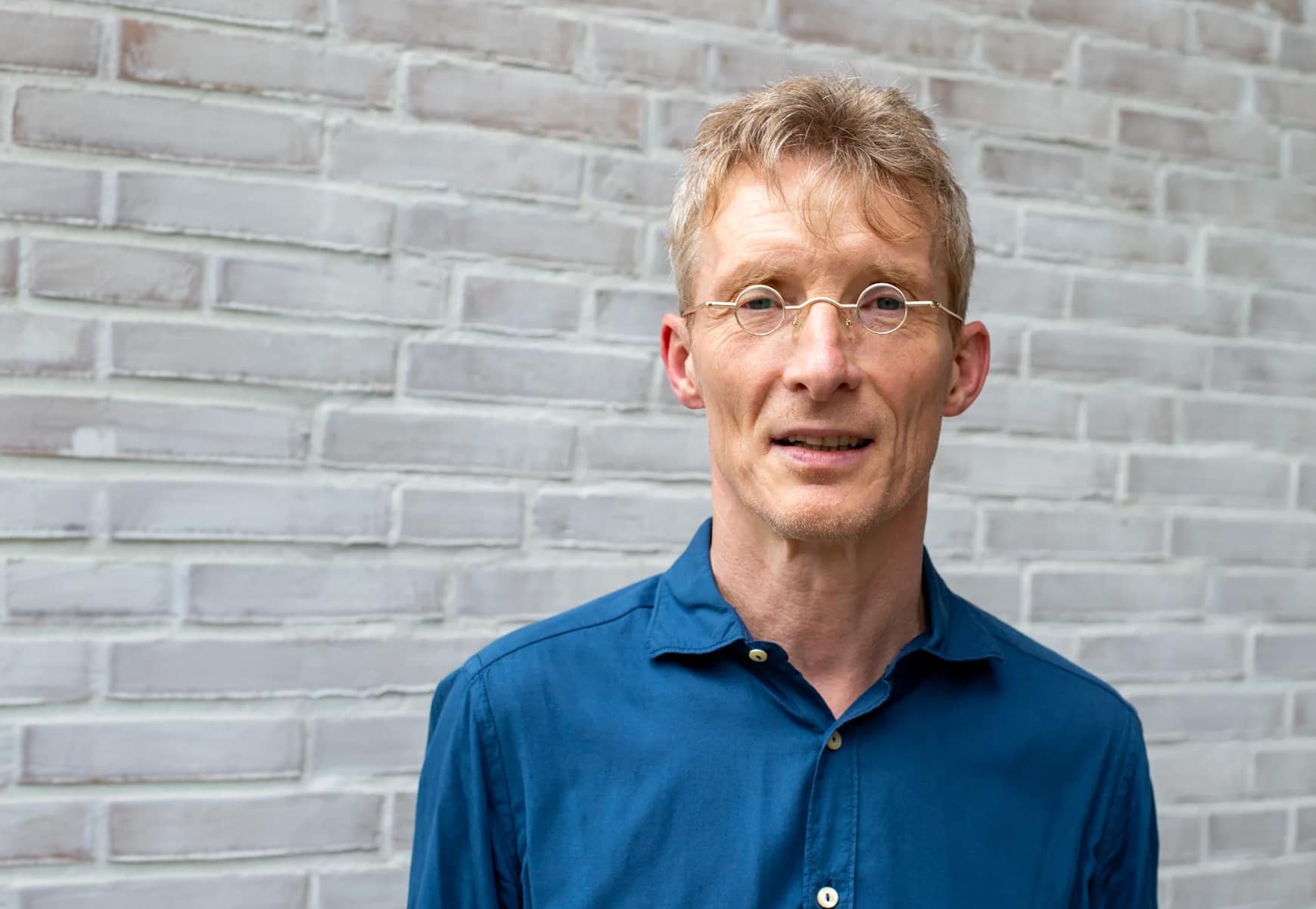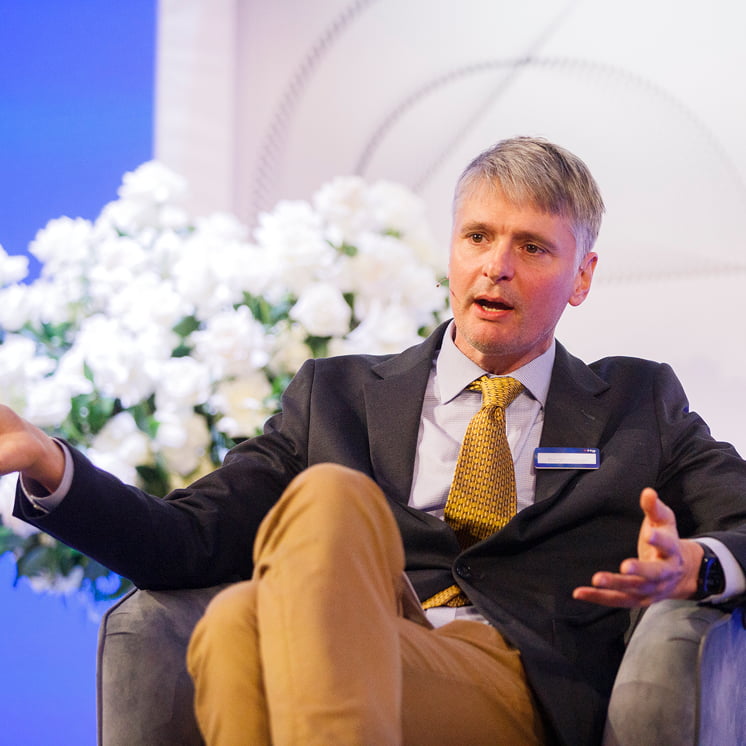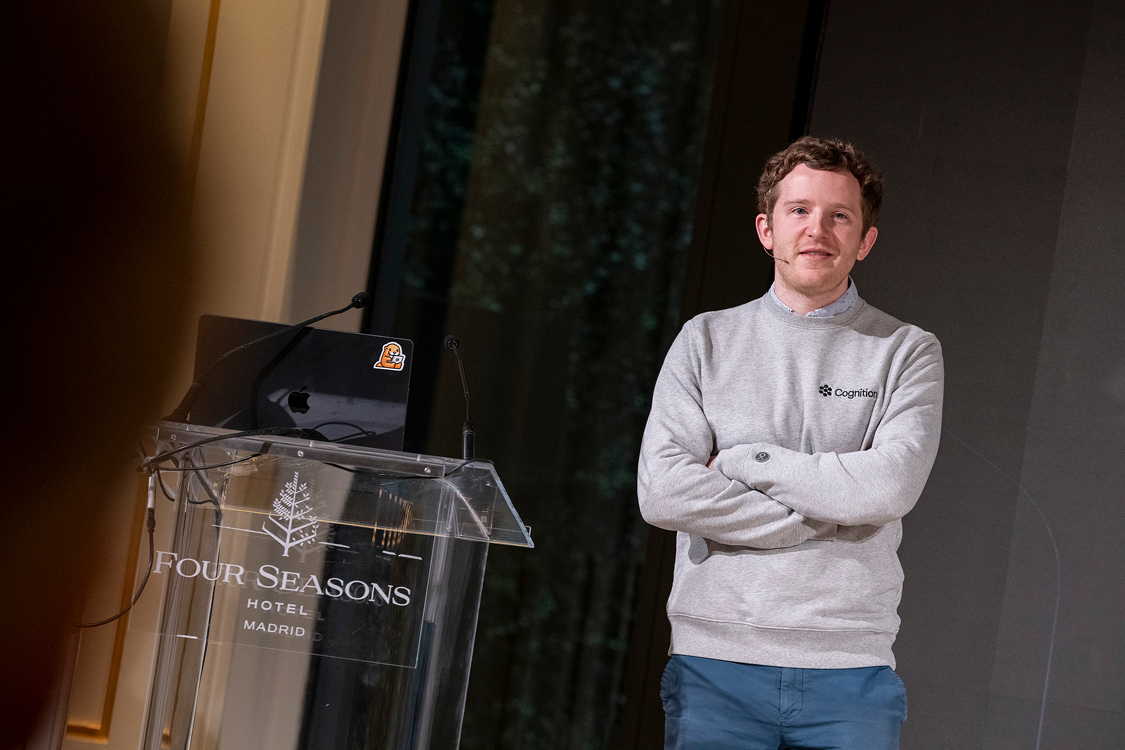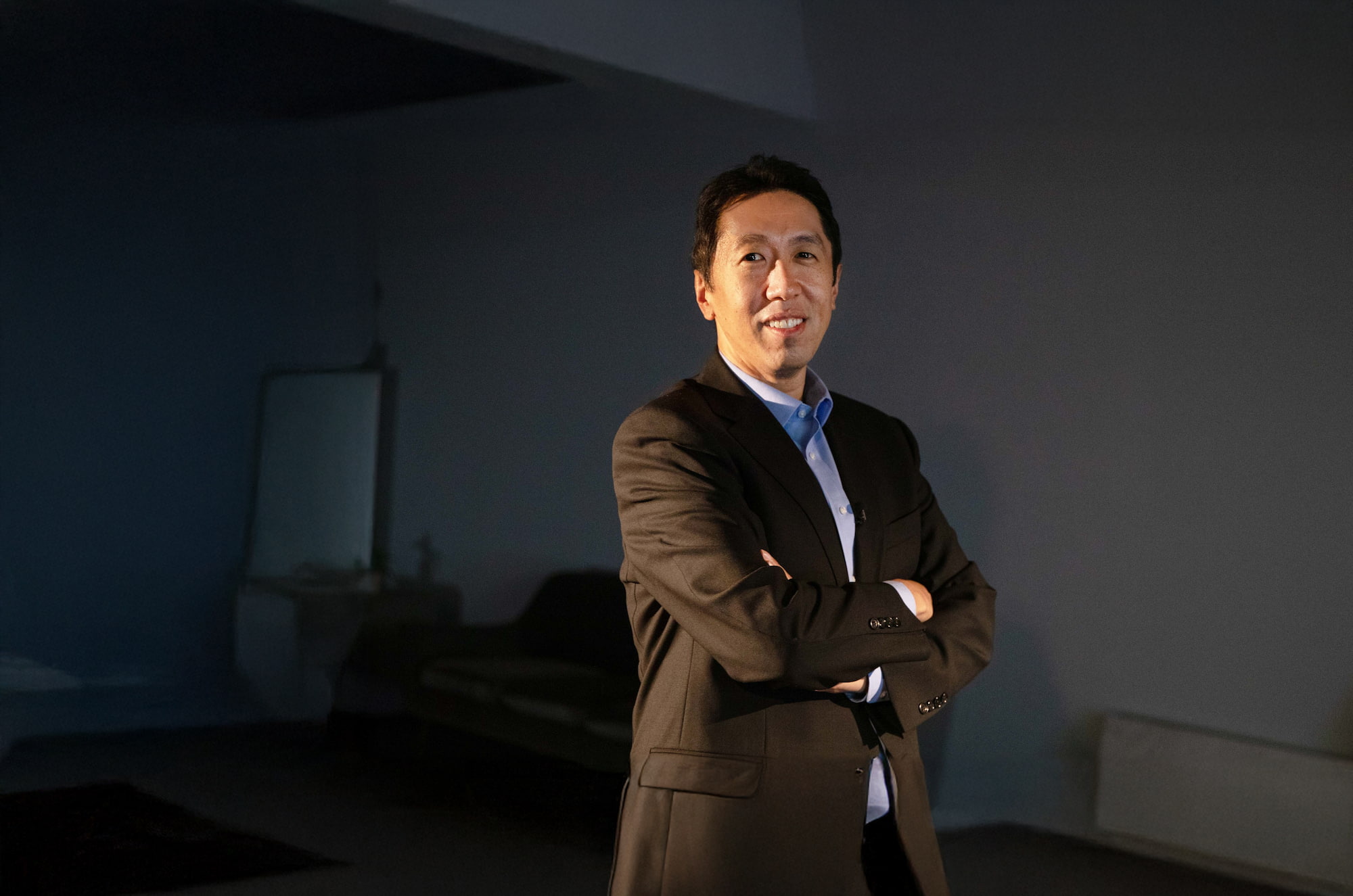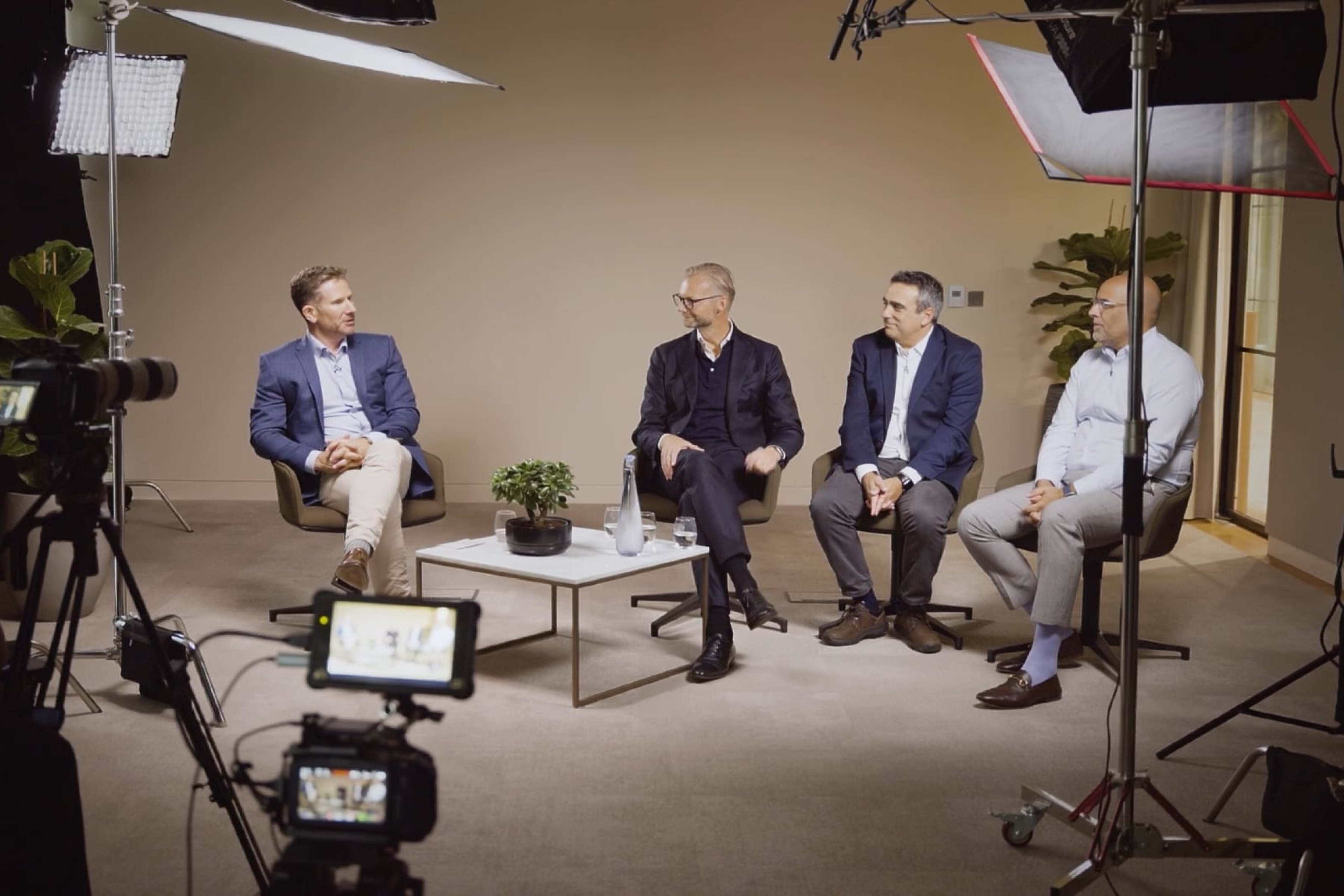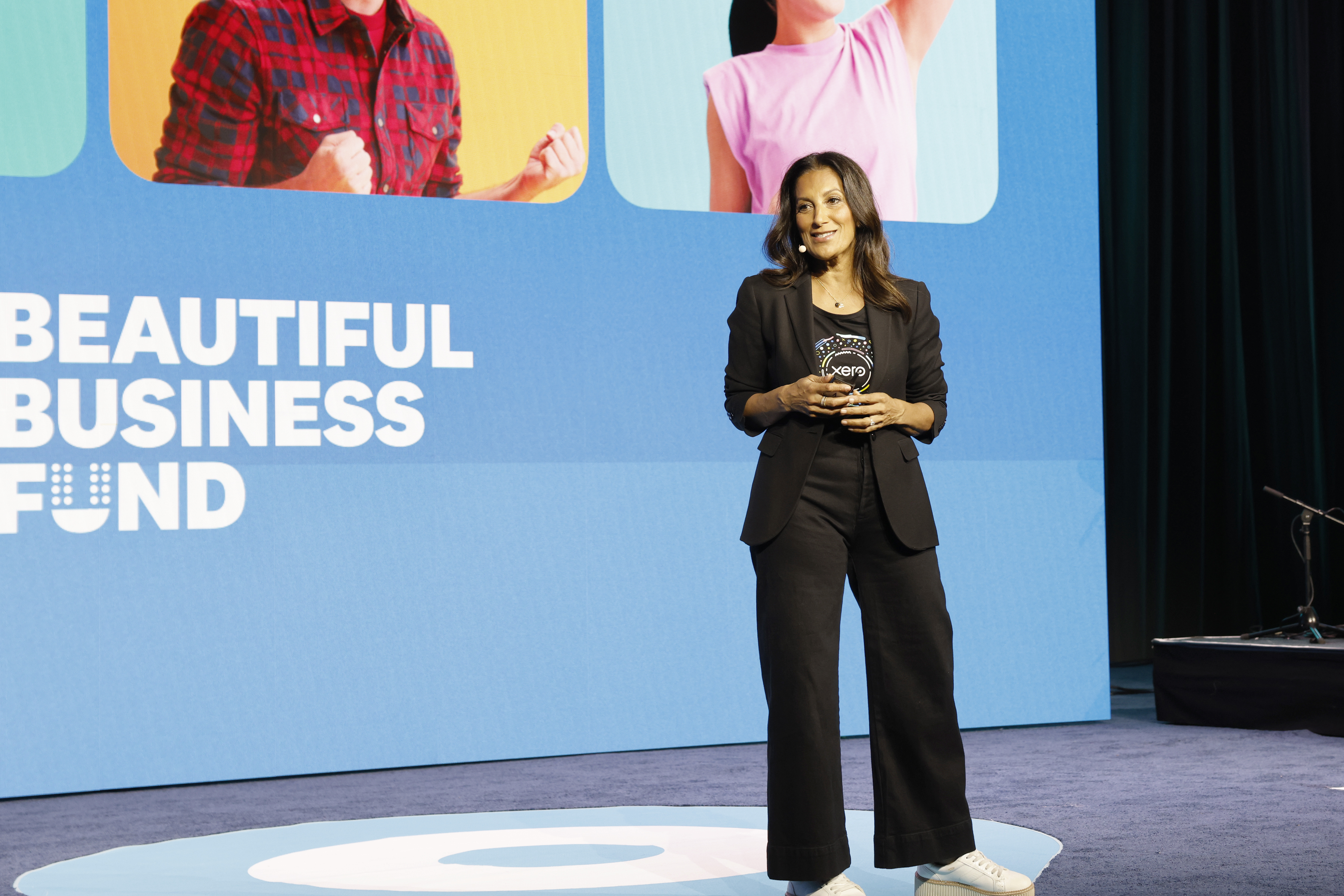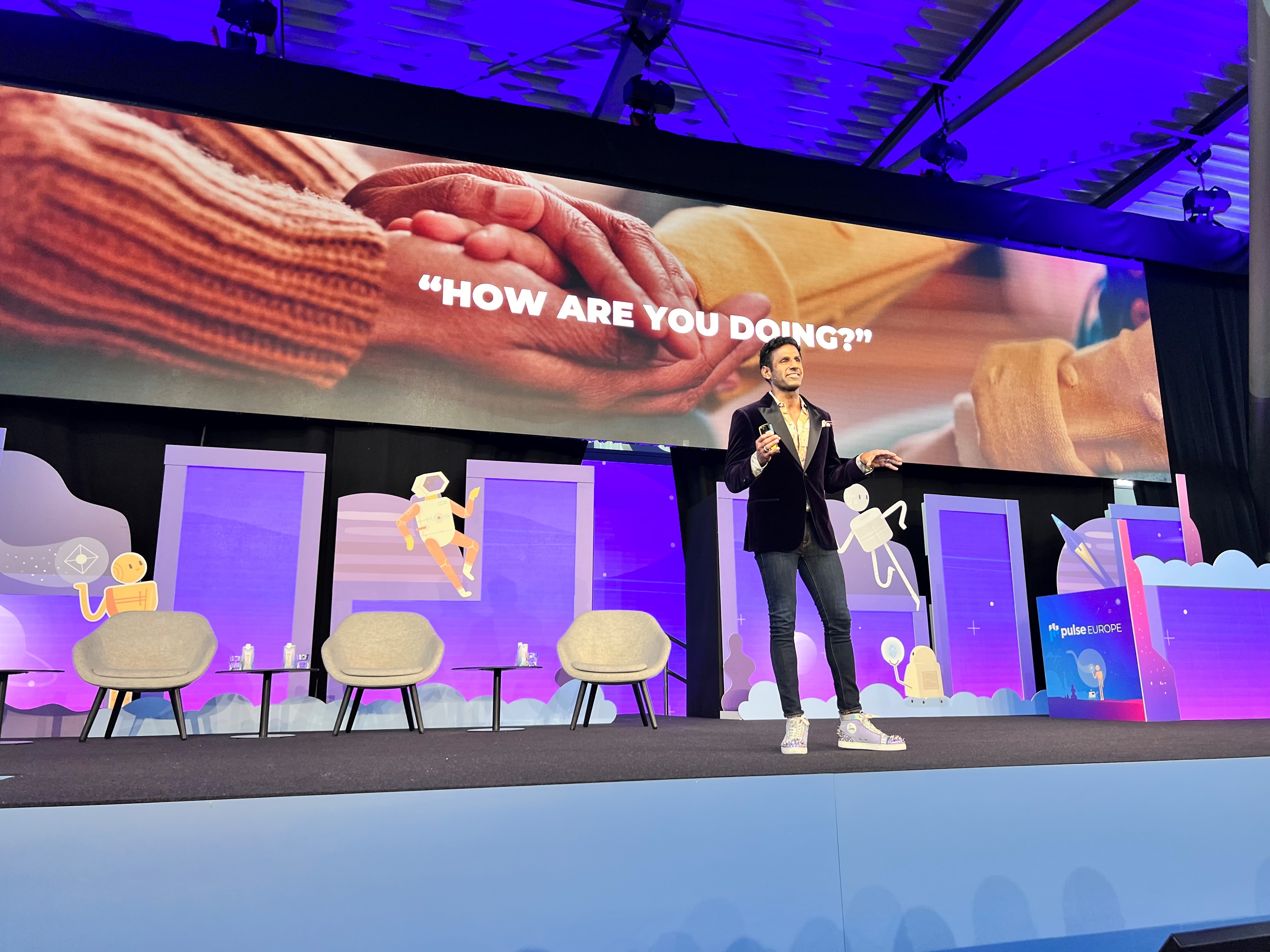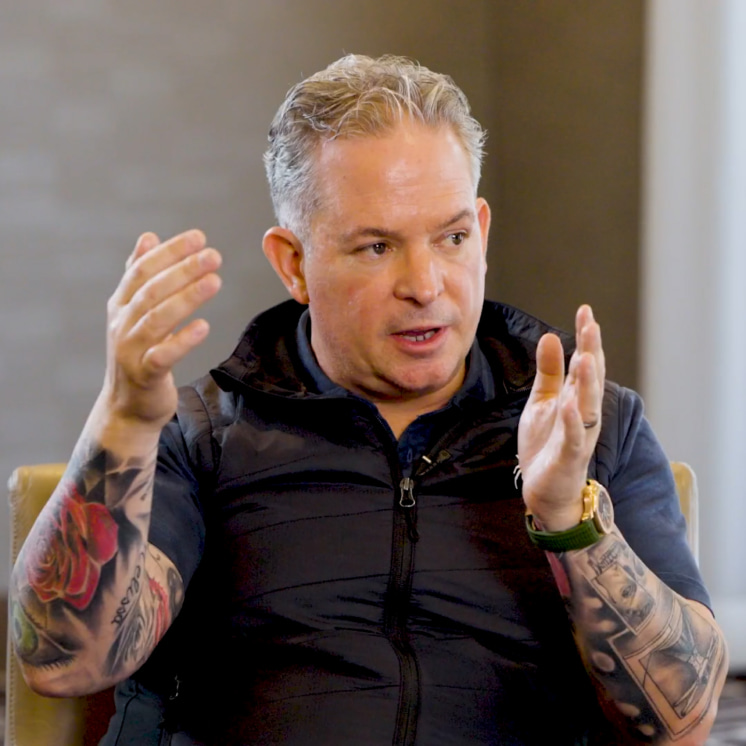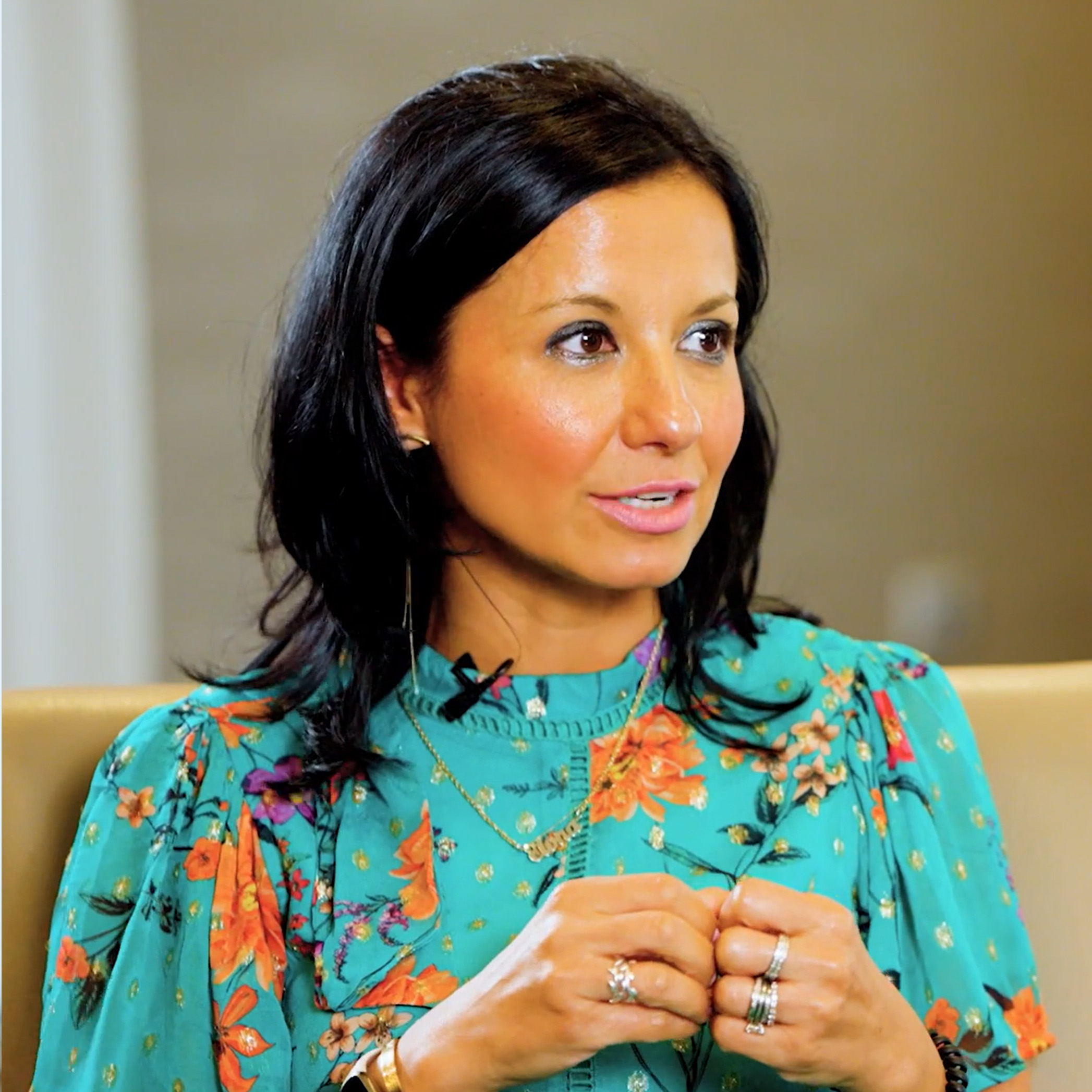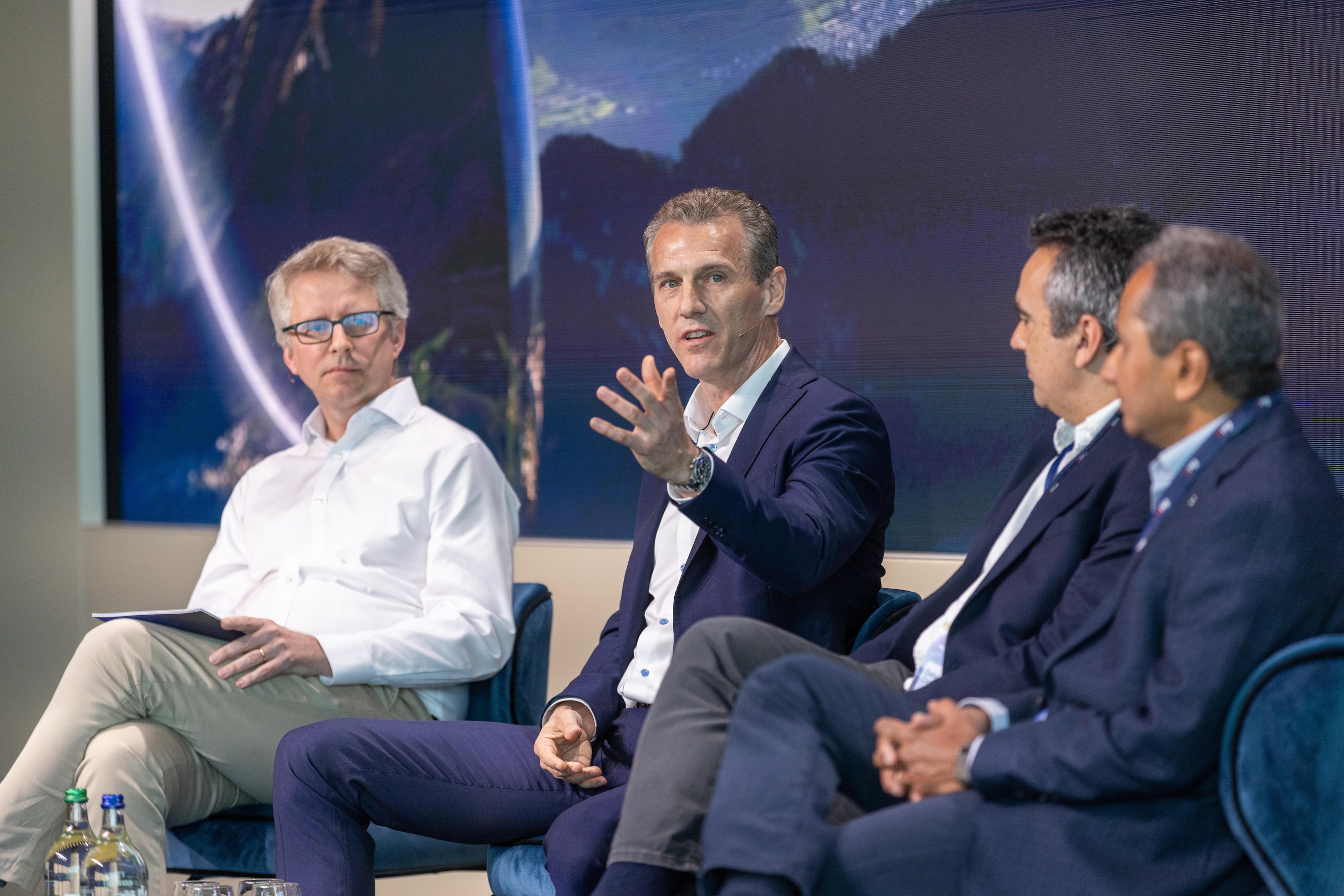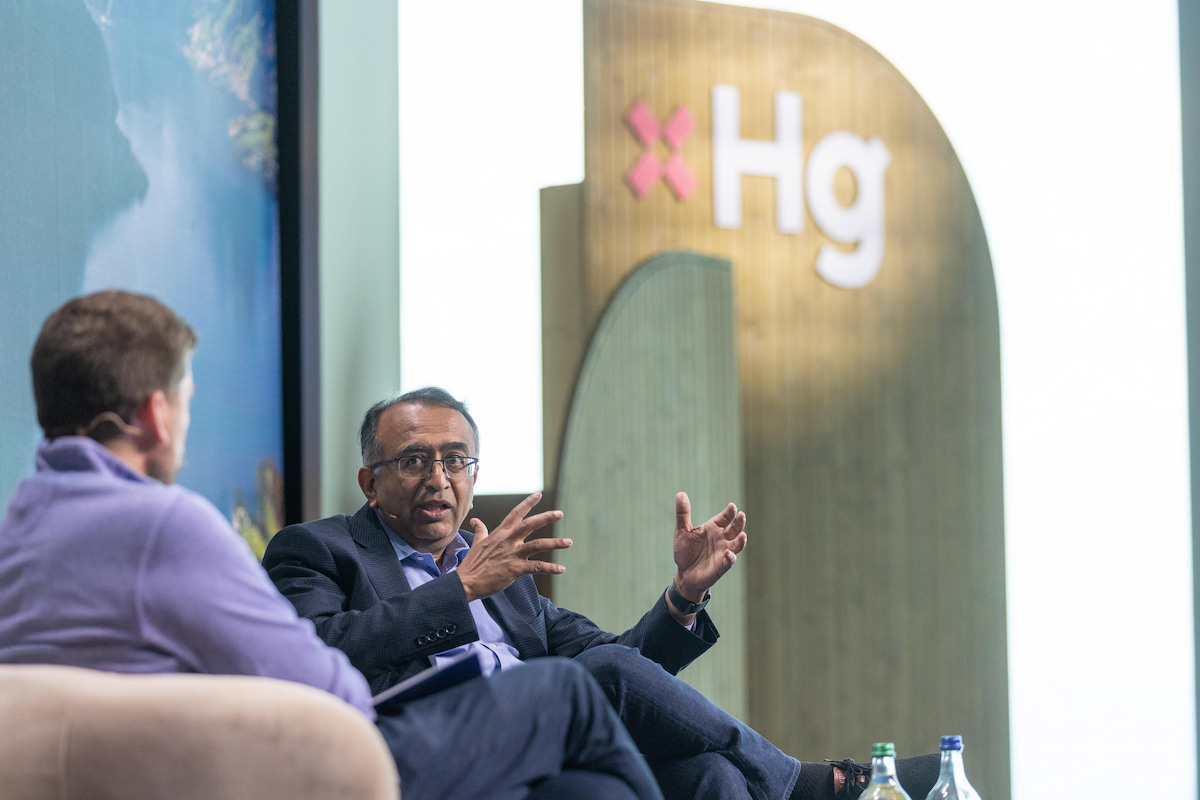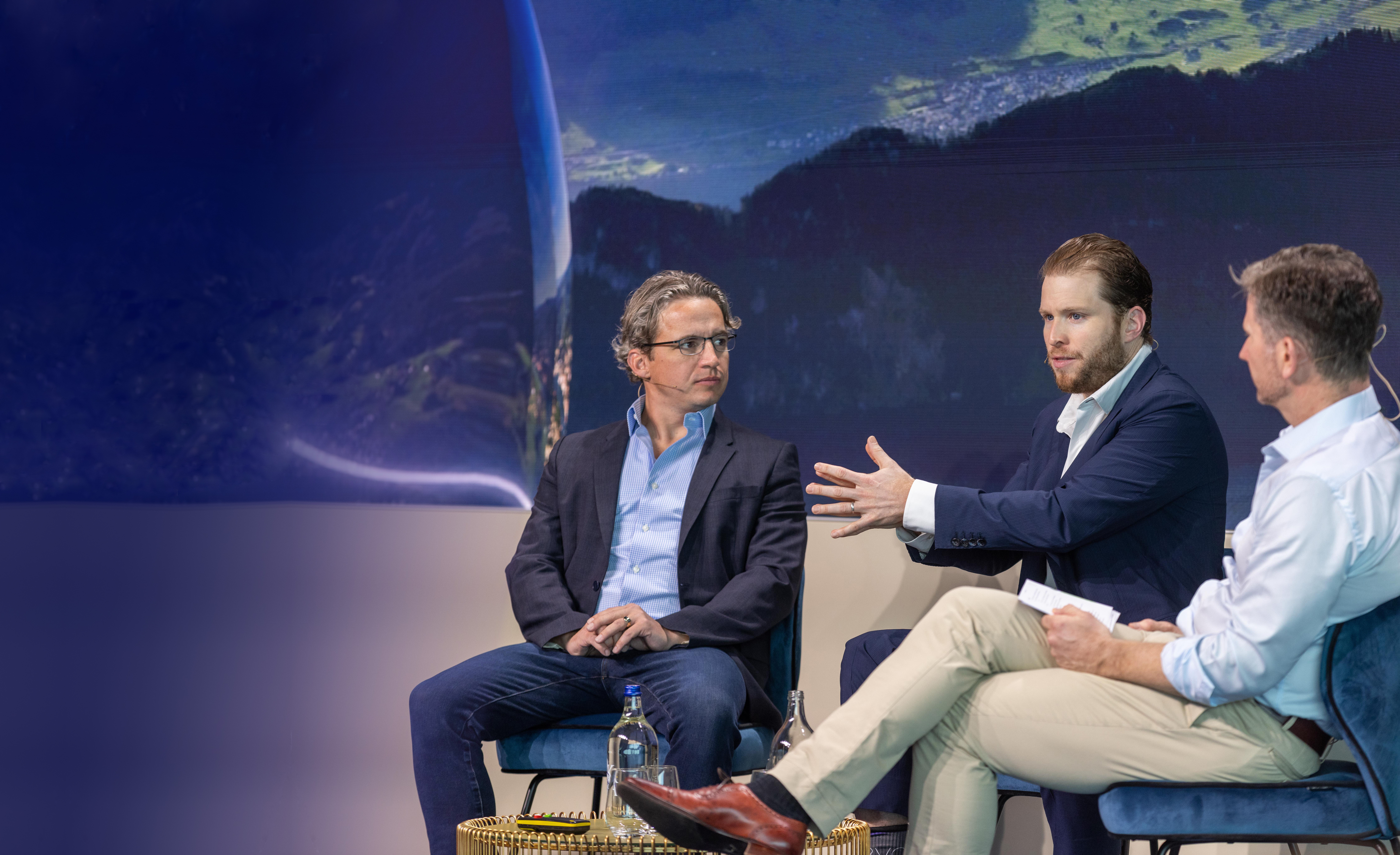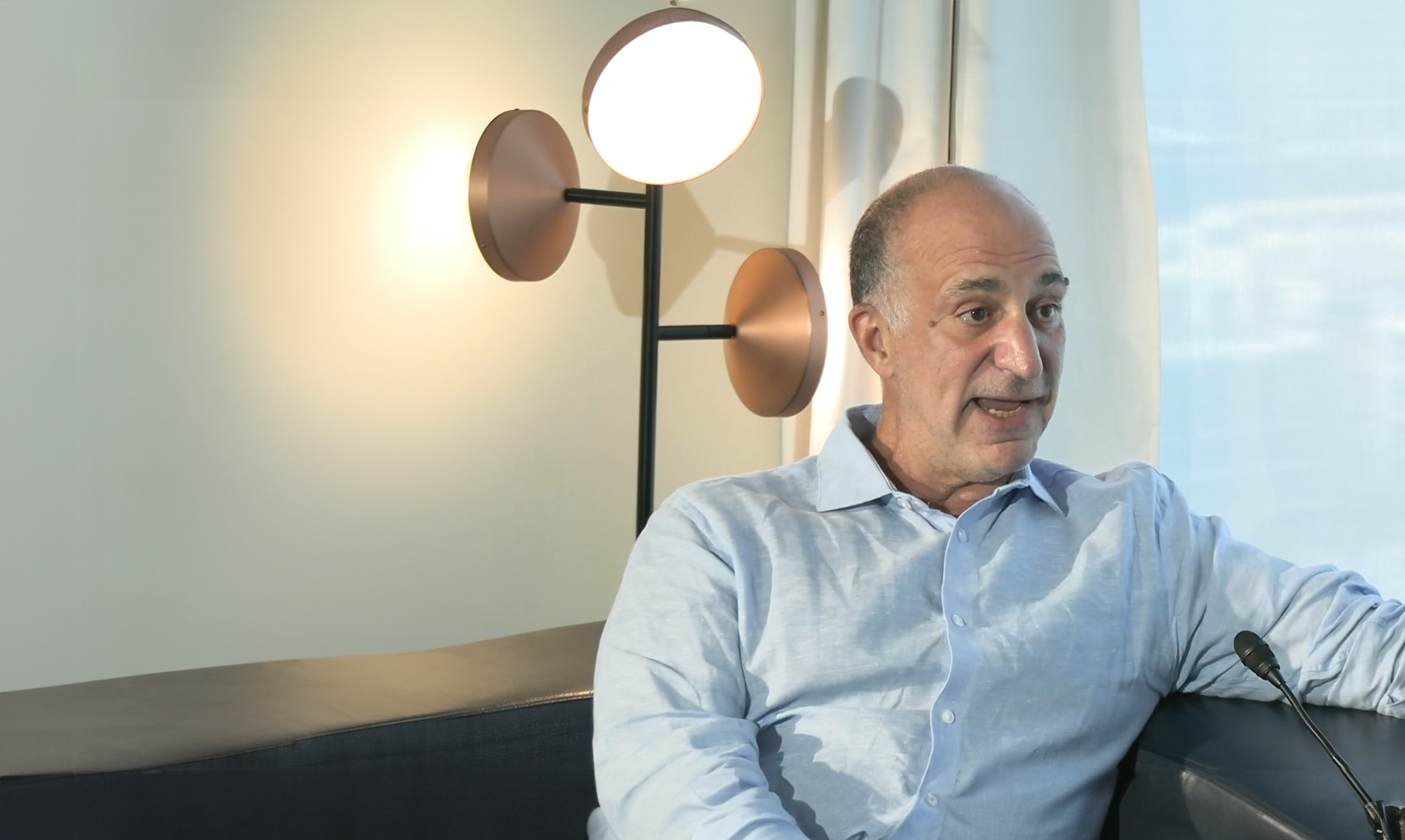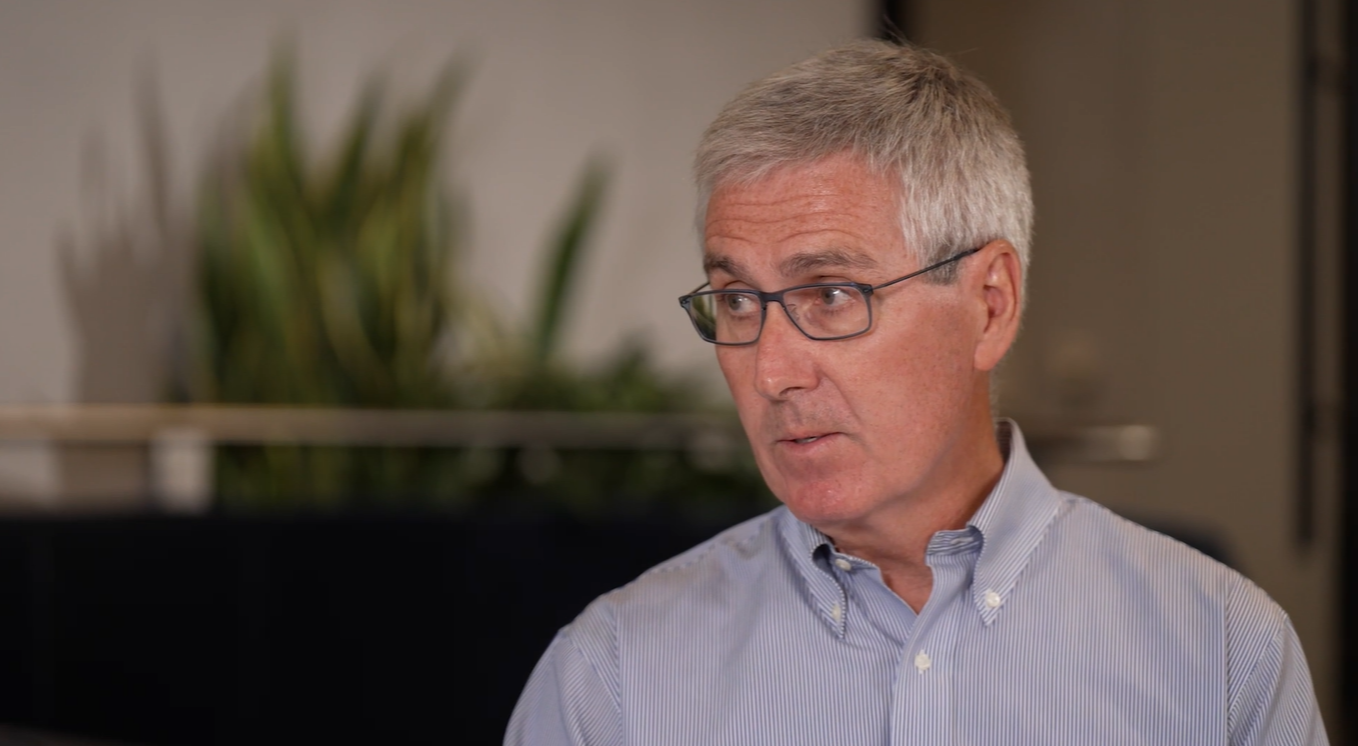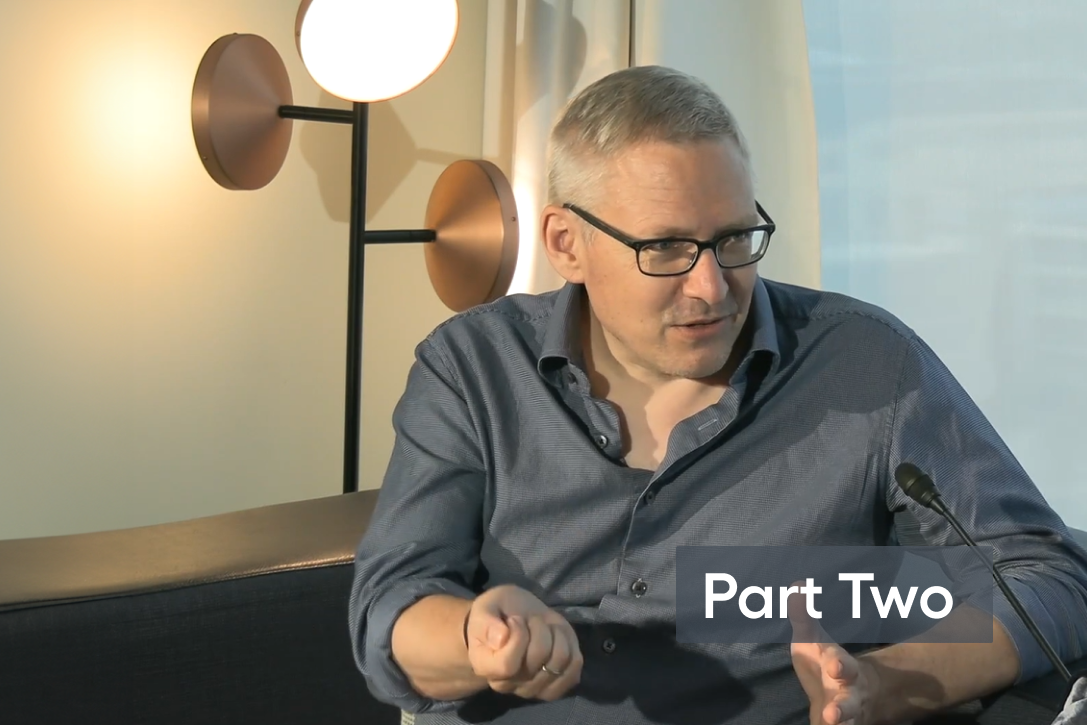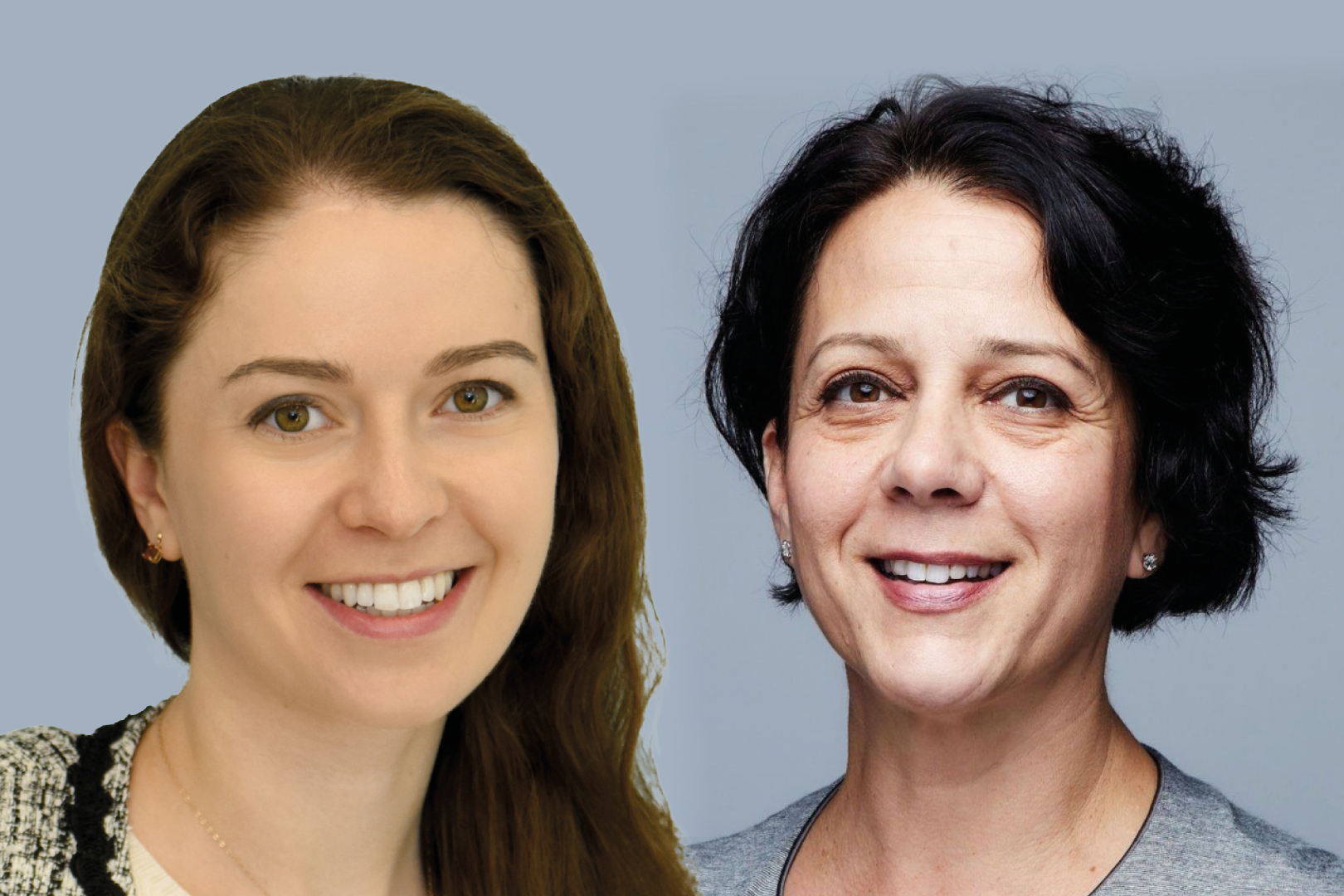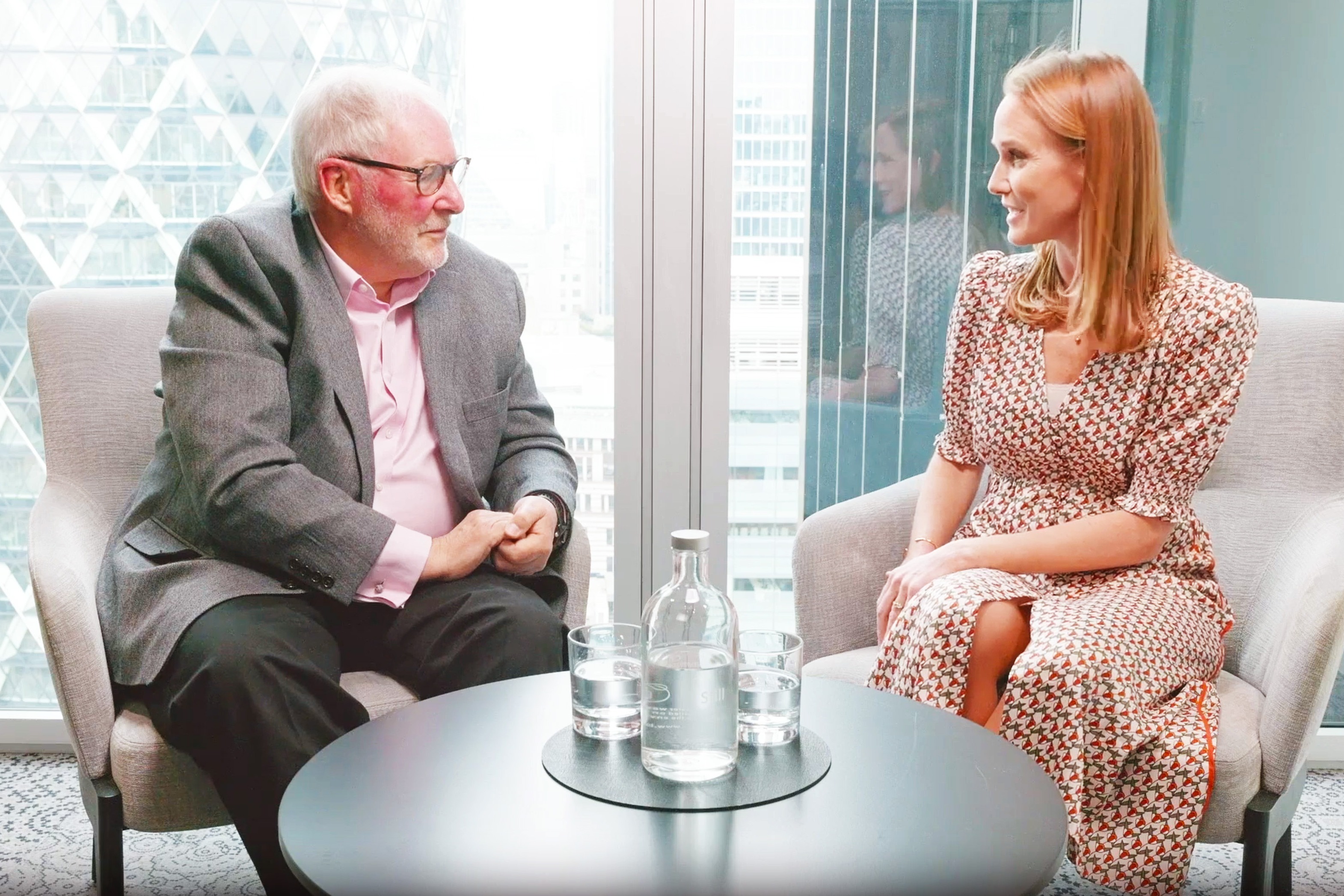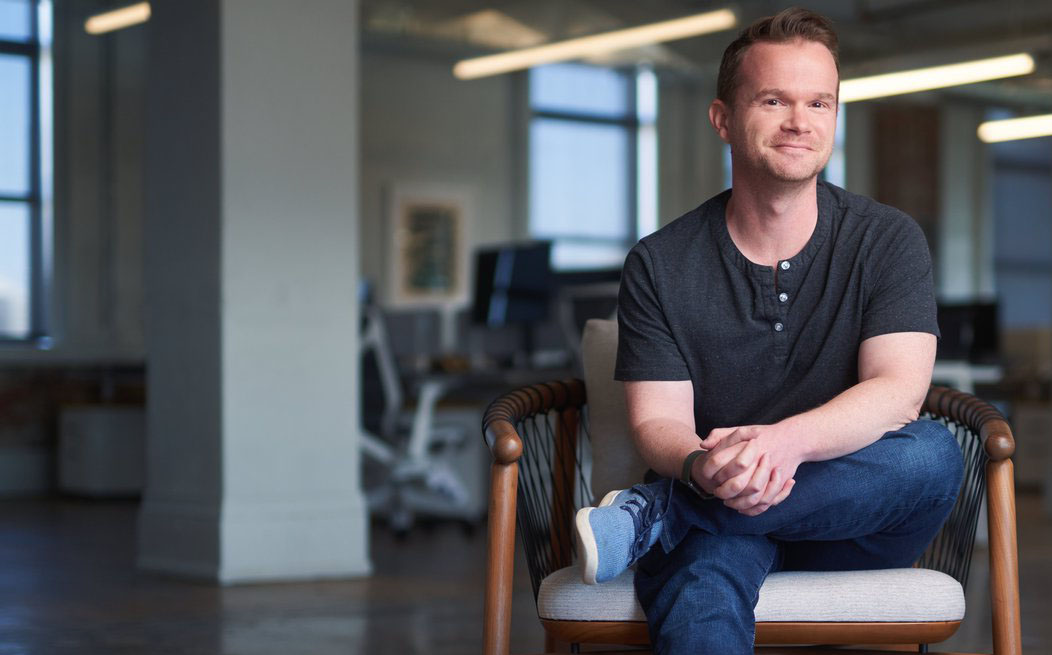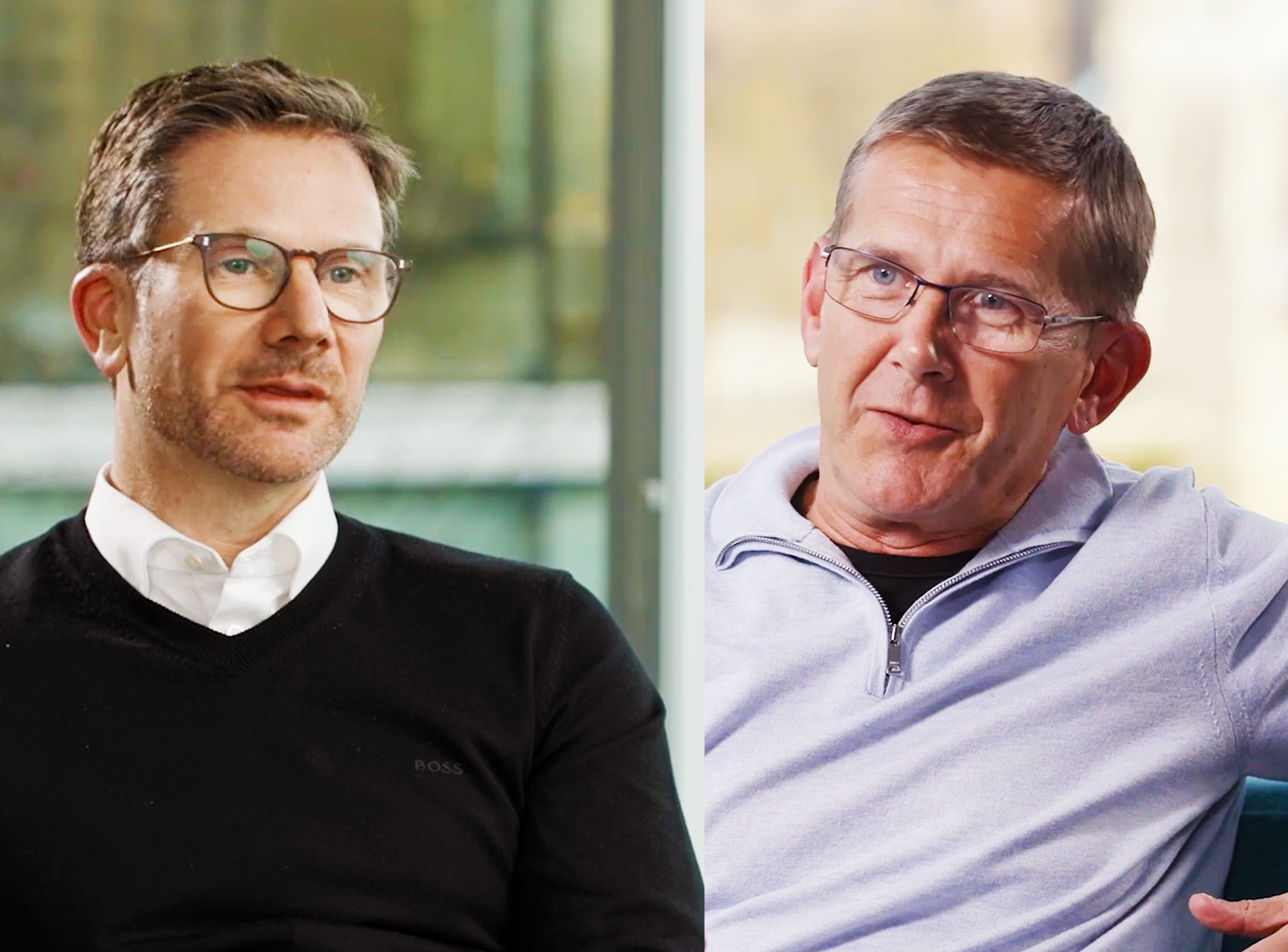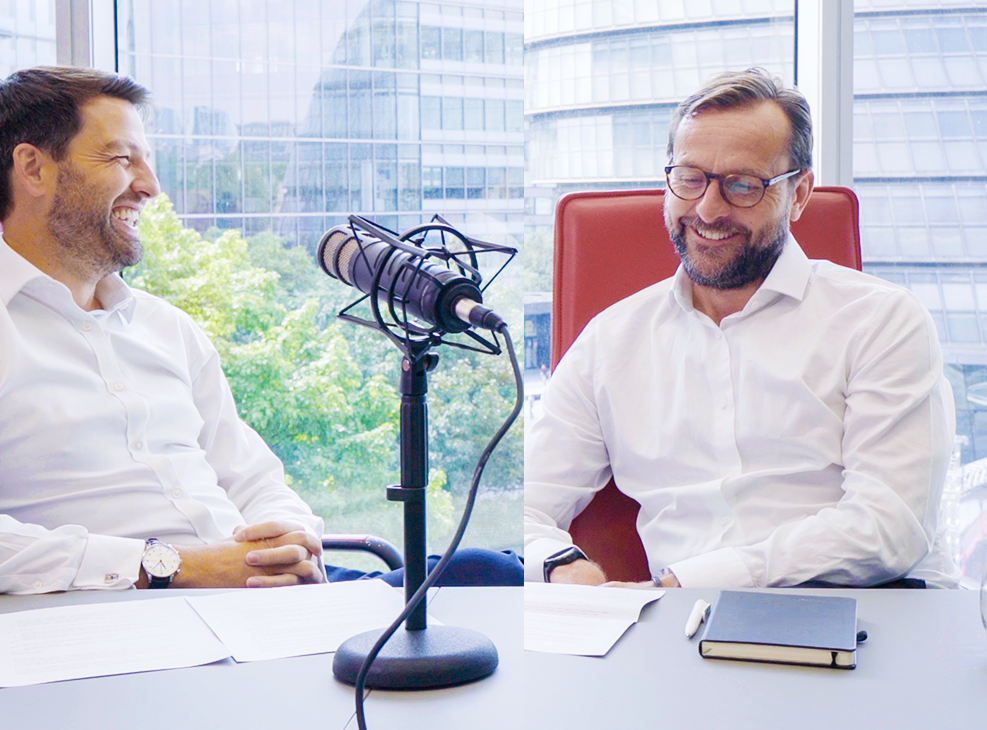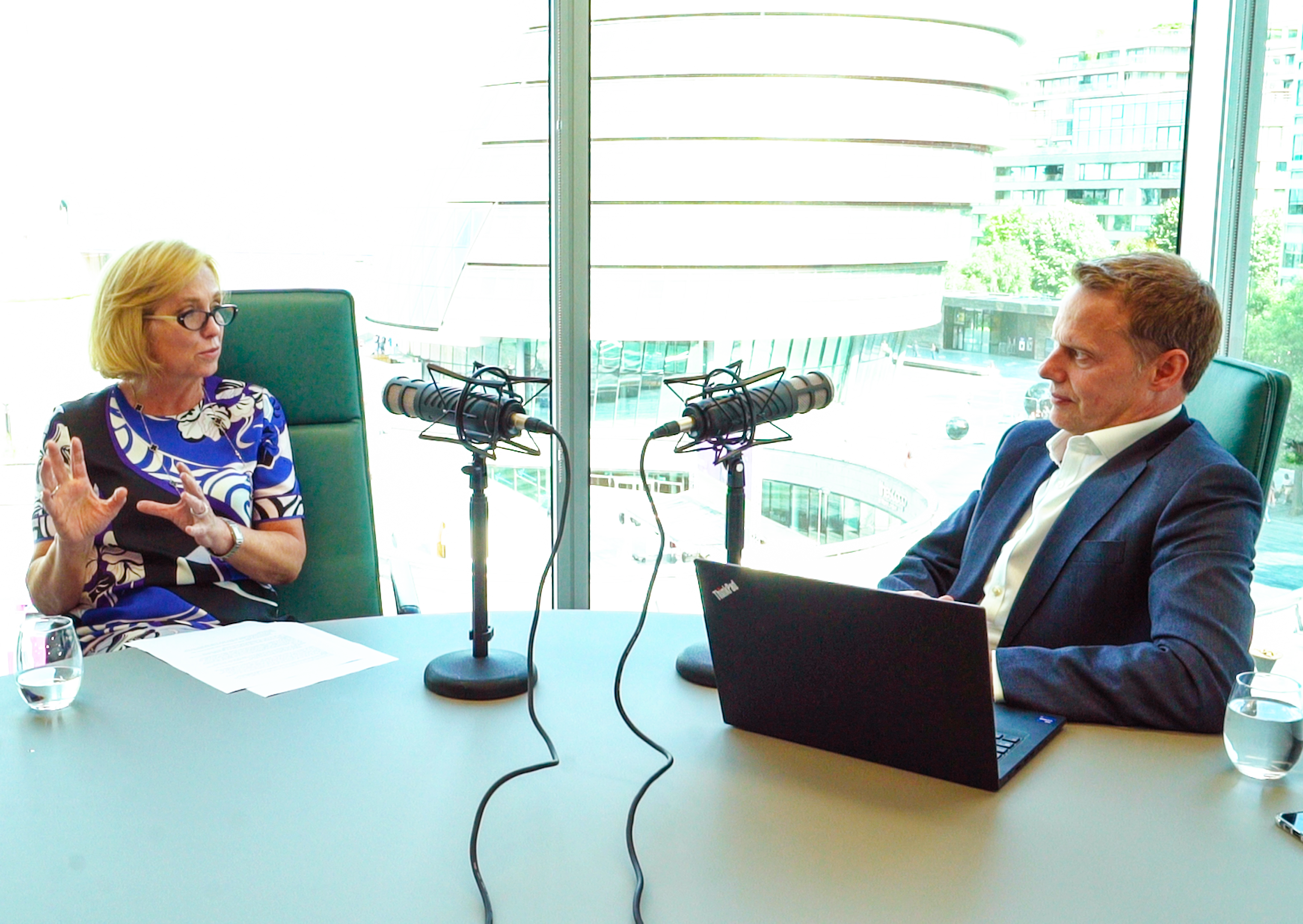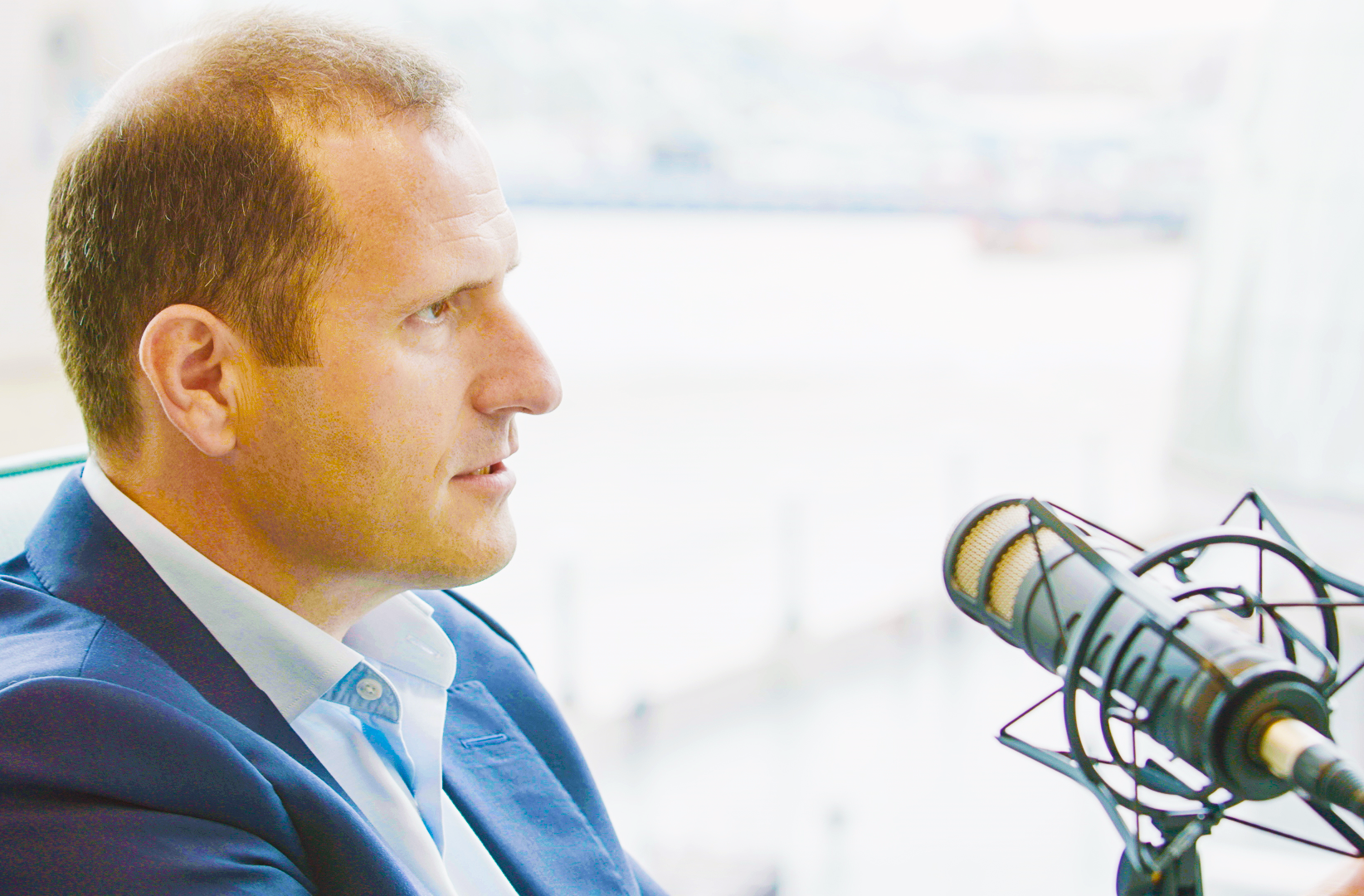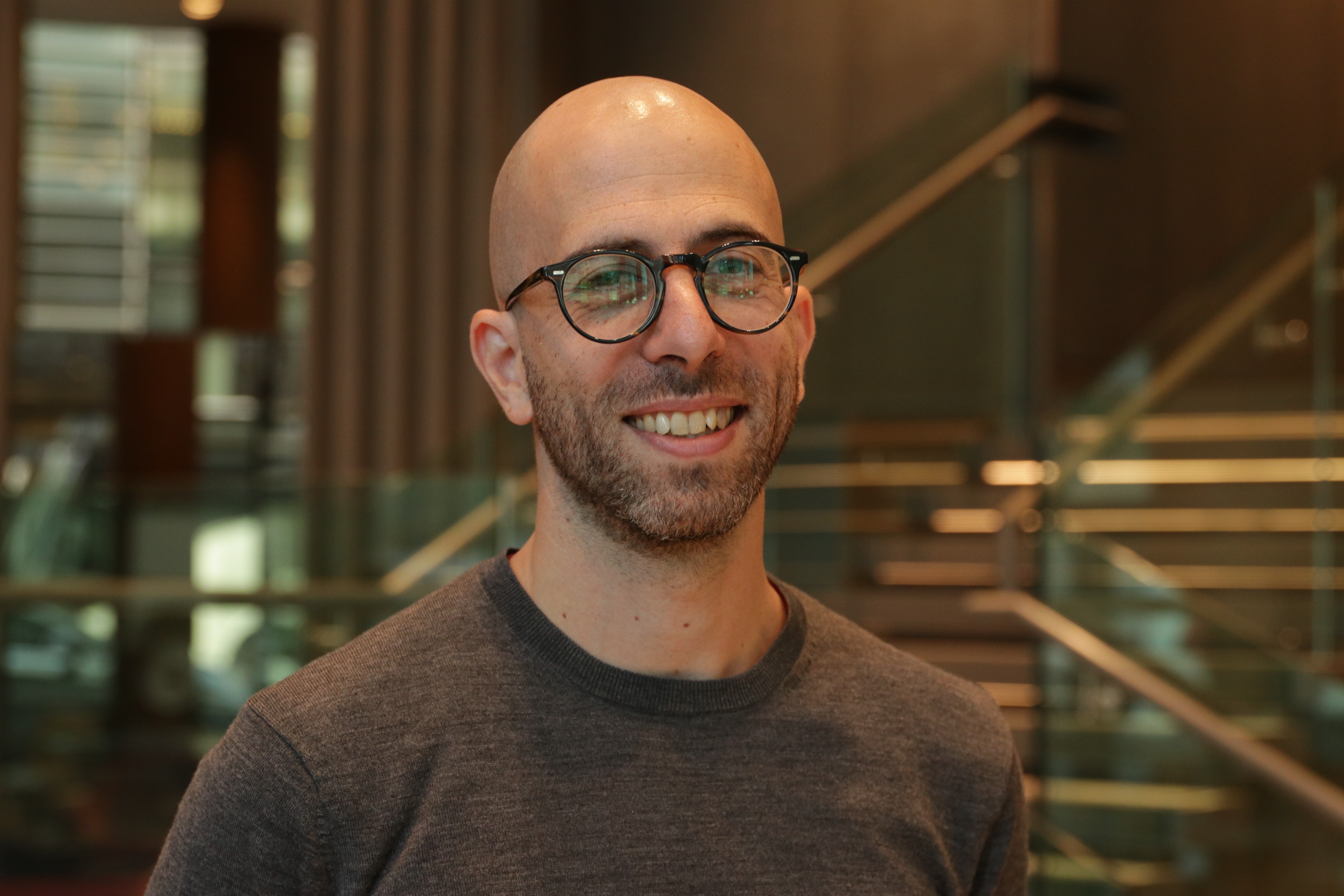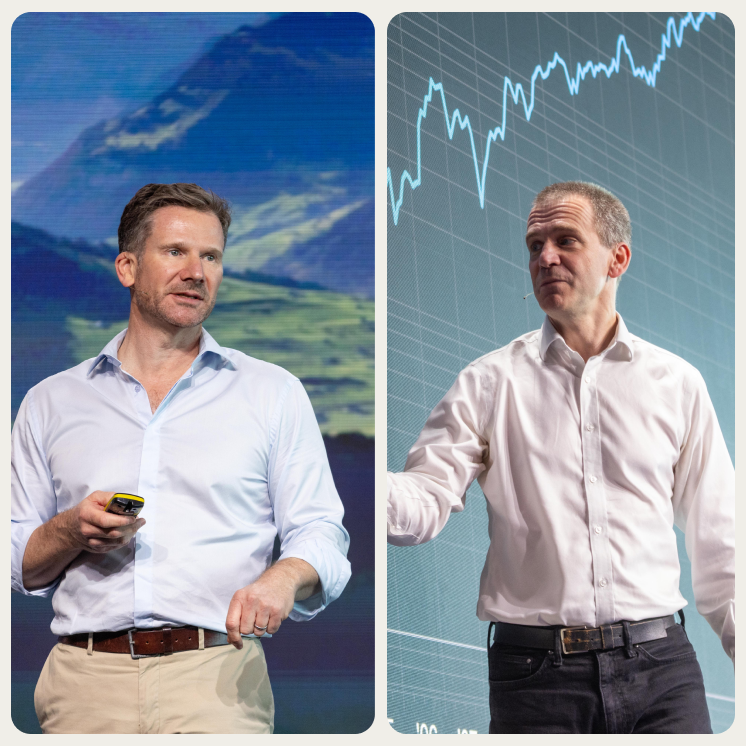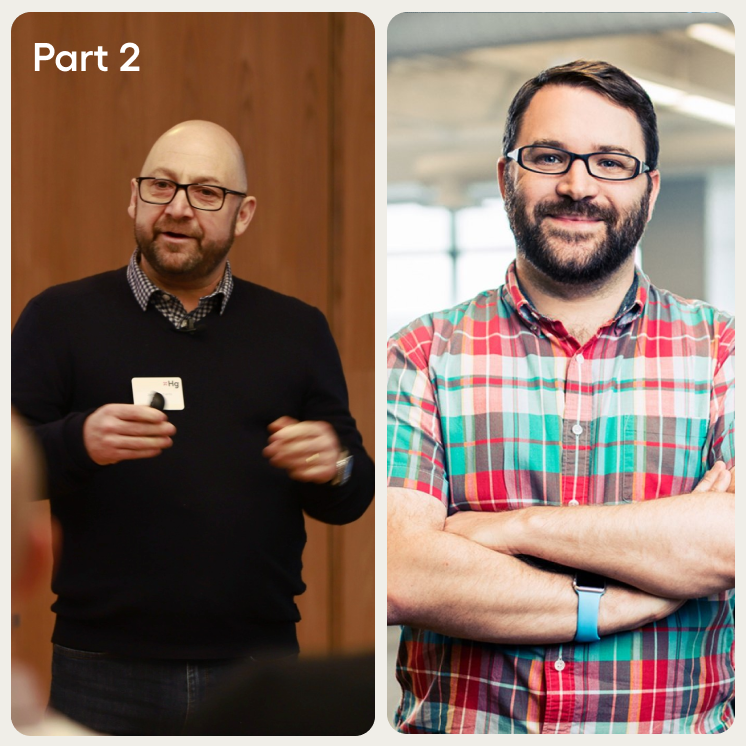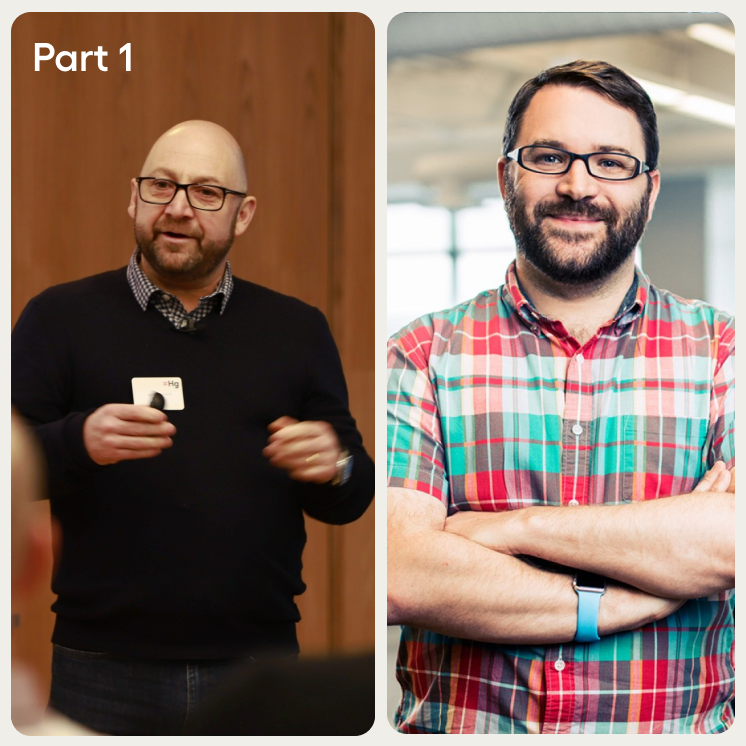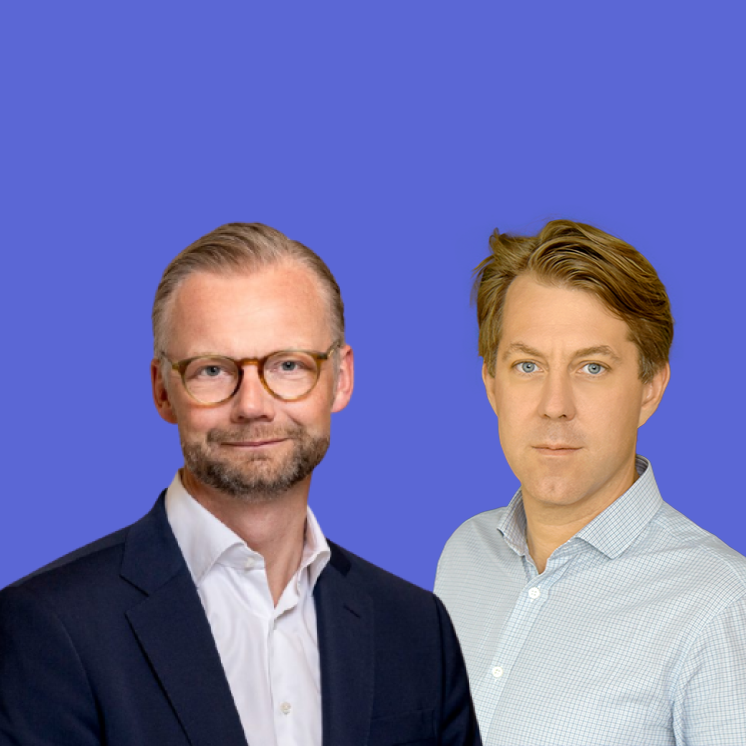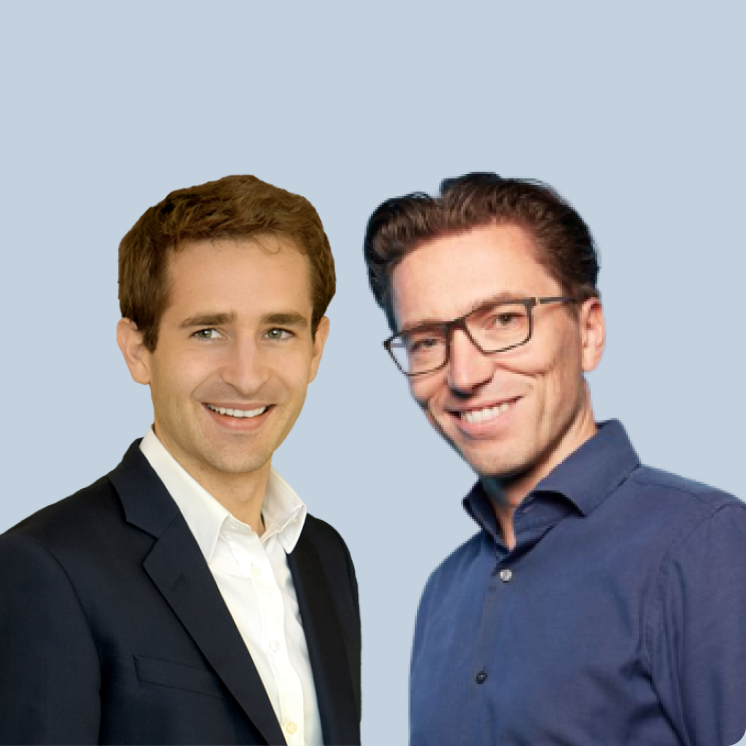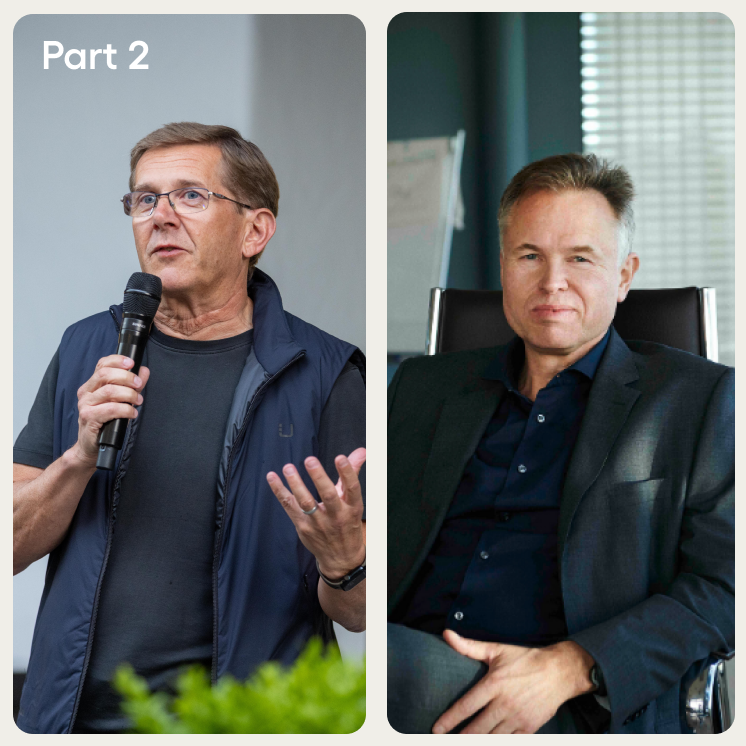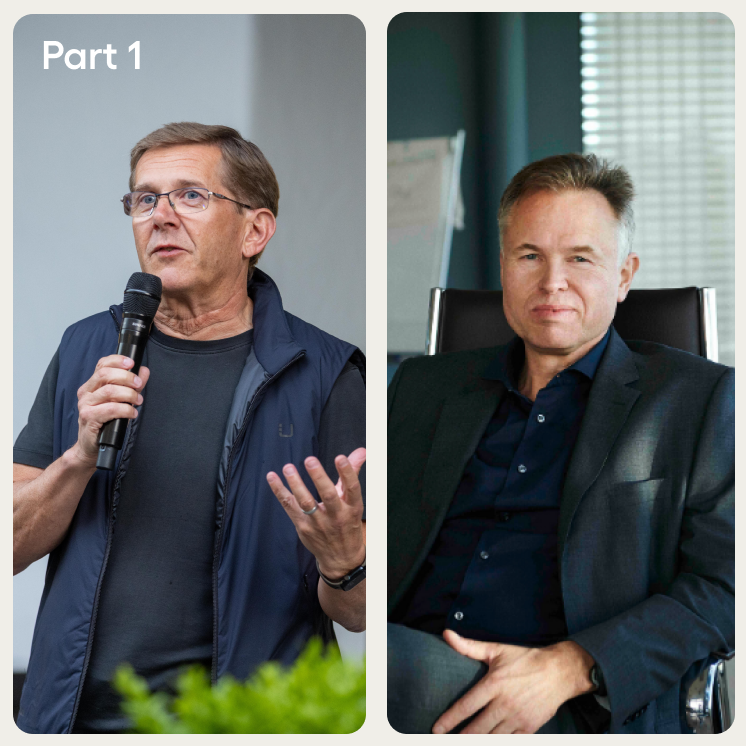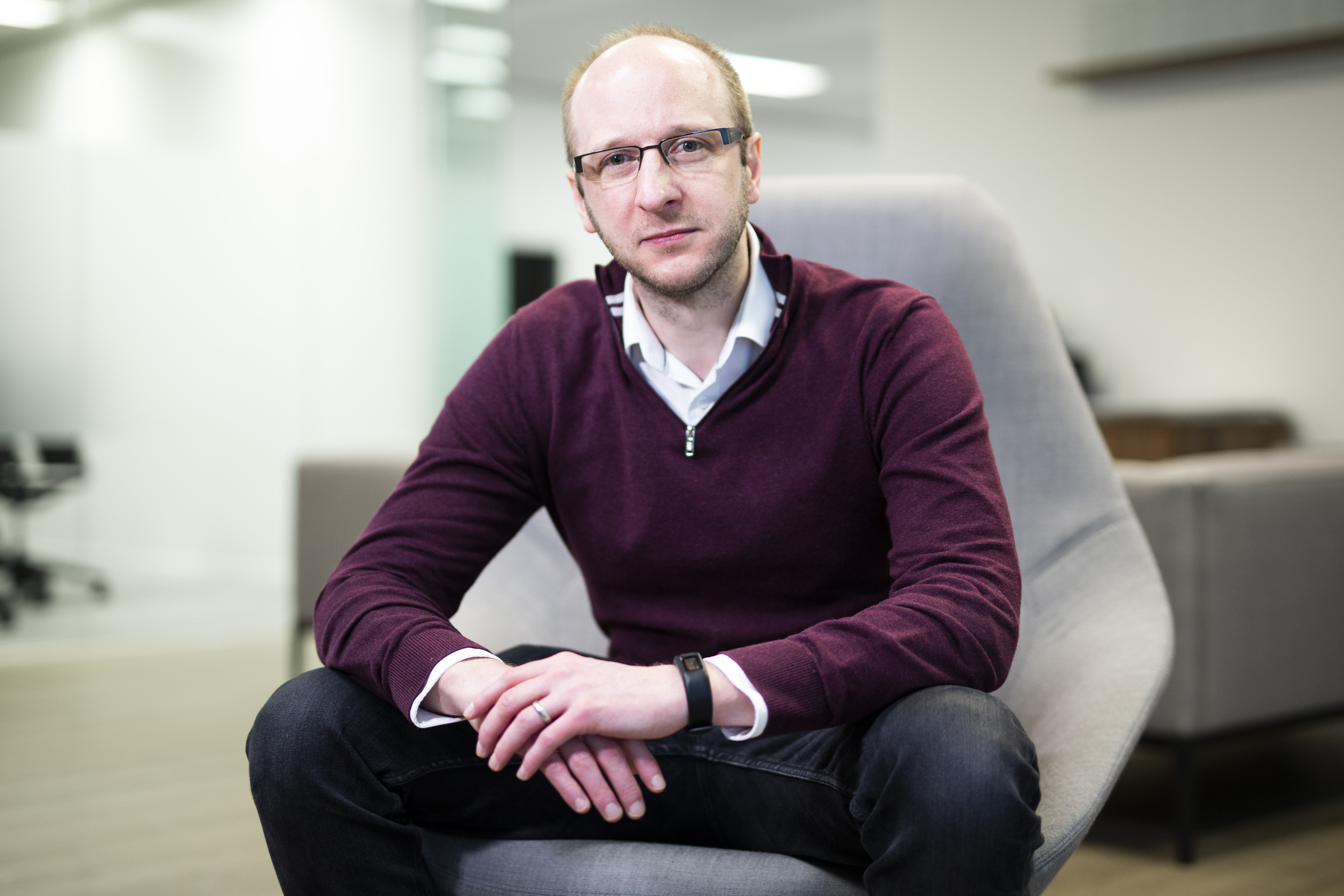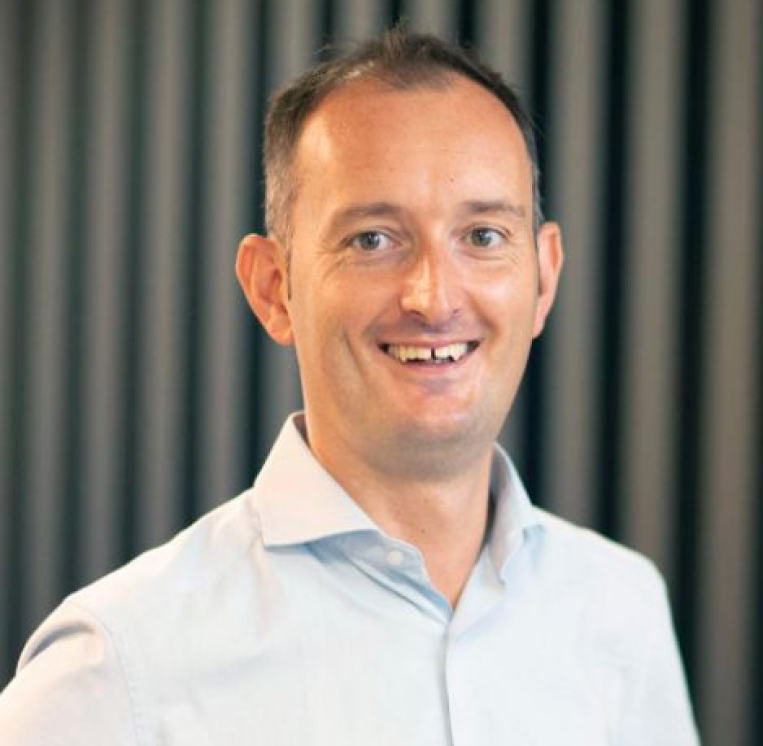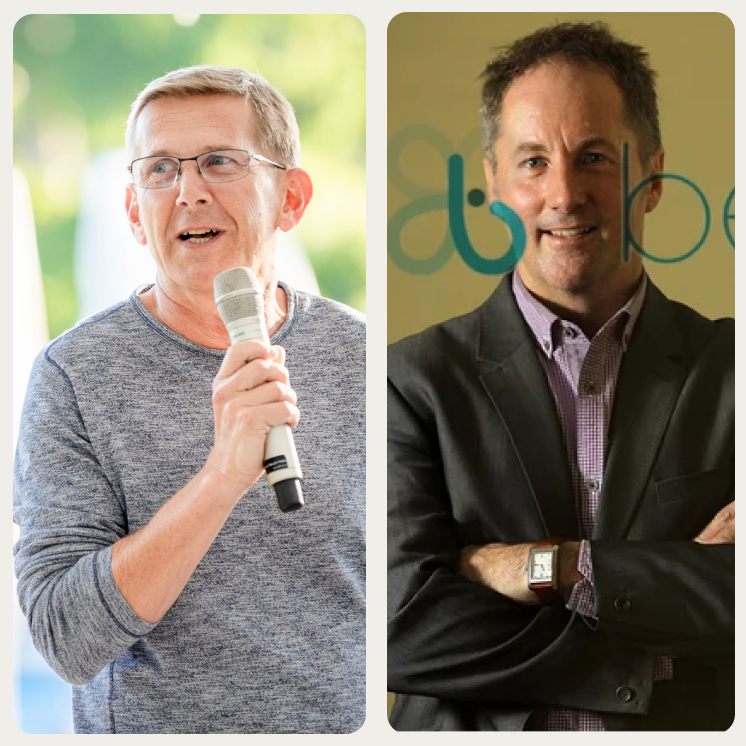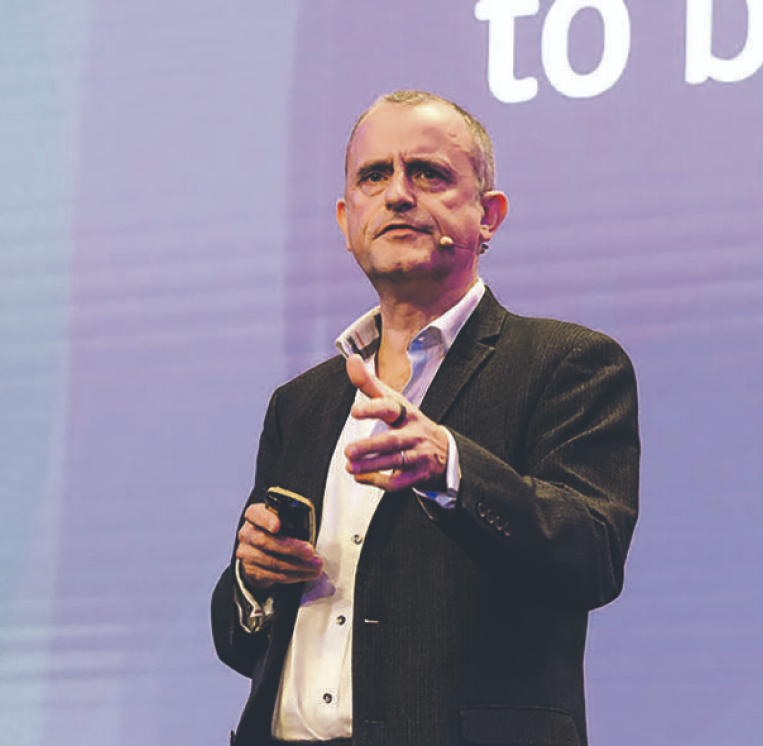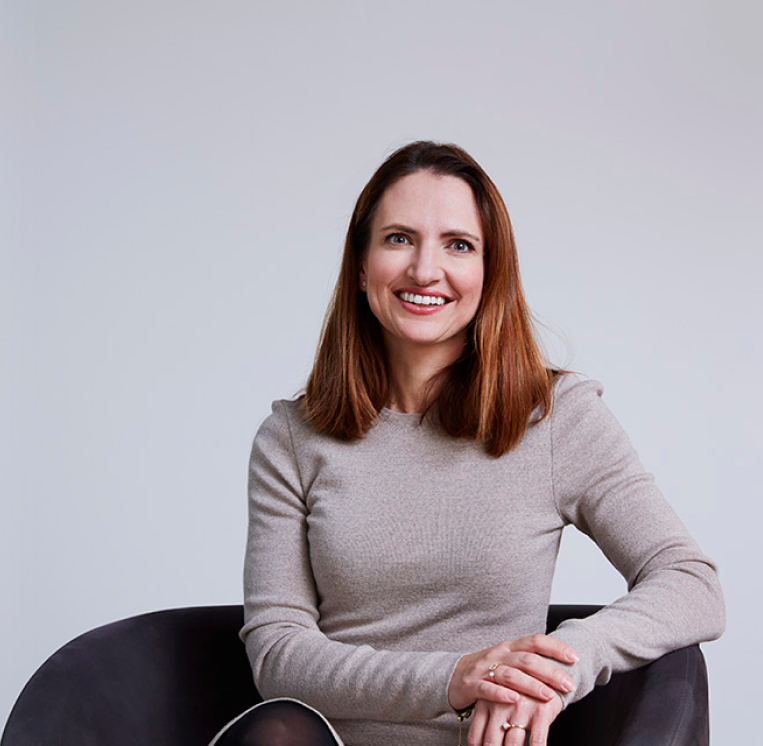Orbit Podcast
Orbit 45
A glimpse of the next generation: Zoe Zhao and Annalise Dragic of Azlin Software
As AI beds into the business world, a new breed of company is being born where the latest technology is built-in. Helping them to grow is an equally new breed of investor.
In the first Orbit of 2025, Nic Humphries hosts sits down with Zoe Zhao and Annalise Dragic, co-founders of Azlin Software. With backgrounds in venture capital, M&A, and Hg's own Saturn investment team, Zhao and Dragic share their journey from investing in B2B software companies to creating their own investment platform. They delve into their unique approach to acquiring and nurturing vertically specialized young businesses, emphasizing a long-term, sustainable growth model that leverages AI and automation for efficiency.
The co-founders discuss the importance of community within their portfolio, fostering innovation, and the balance between nurturing product development and a vibrant company culture. Their entrepreneurial spirit shines through as they explain how Azlin Software plans to support founders at the smaller end of the market, where businesses may not yet have the resources to fully realize AI's potential. Whether discussing their own entrepreneurial leap or the future of software investment, Zhao and Dragic offer a fresh perspective on the intersection of technology and business growth.
Listen on:
Episode Transcript
Annalise Dragic
In talking to founders, we've also seen that a lot are building from their own lived experience. Their families are farmers or cabinet-makers, and they were the ones who studied computer science and actually ended up building software to help their parents or siblings run the business better. And then they discovered that actually it's also useful to their competitors or similar types of companies and so with that, realized that they've actually built something quite valuable.
Nic Humphries
Welcome to Orbit, the Hg podcast series where we speak to leaders from across the tech ecosystem to hear how they've built and scaled some of the most successful software companies in the world. And I'm very happy to be joined today by Zoe Zhao and Annalise Dragic, co-founders of Azlin Software. Both Zoe and Annalise have extensive experience in investing and growing B2B software companies. Zoe is an alumni of Hg's very own Saturn investment team, having worked in both our London and West Coast offices.
And Annalise has worked in venture capital and corporate M&A at Sapphire Ventures, Atomico and LinkedIn. Now they're combining their strengths in building Azlin Software, a pioneering investment company that buys, holds and grows vertically specialized B2B software for the very long term. And I should mention that they're also serving as industry advisors to Hg, for which we are very grateful. Zoe, Annalise, thank you so much for your time today. I really appreciate it.
So I'm going to kick off, if I can, Zoe. We've obviously known each other for a long time, six years working together as colleagues in the Saturn team at Hg. You're on the board of Visma, you led a number of our investments for us, which we're eternally grateful because they're doing super well.
Zoe Zhao
Great.
Nic Humphries
Give us a bit of an update of what you've been doing together and individually since you left Hg.
Zoe Zhao
Well, thank you, Nic. I always say I learned everything about software investing at Hg and I'm still very close friends with a lot of colleagues I've worked with at Hg, so I feel like I've never left. And what we're doing now is still investing in B2B software, just a slightly different business model in a different part of the market. Last year, since I started taking some time off thinking about all the things I learned and really enjoy doing at Hg and working together on several of our platform investments, including Visma, this much smaller part of the market, working with a lot of founders when they're thinking about scaling the business is super attractive.
And Annalise and I also had the advantage of having spoken with 150 people who are founders, builders and investors in different kind of business model investing and backing software companies. Finally, we designed and launched Azlin Software this year with great support from investors including yourself. So very excited to get things started.
Nic Humphries
Brilliant. I'm going to go off script straight away by just asking you both quickly. You did a lot of research. I remember talking to you and there are a lot of people that you met that I've been fortunate enough to get in touch with since then and you put me in touch with. It's a really interesting vibrant ecosystem that you're now part of. Can you illustrate that in any way for us? Just the types of people and types of businesses that you've met, all that kind of stuff?
Annalise Dragic
Yeah. I think Zoe and I really where we started when we decided we wanted to work together was defining our core values. And so we had those as guiding principles. But then from there, we did, we went out and we spoke to many different types of both operators and investors in and around B2B software. And that was people coming from the private equity world, from more growth equity, from venture capital, from others who had built and scaled really successful businesses.
Because I think for us, we share this passion around B2B software, but we wanted to figure out a strategy for Azlin that was going to best leverage our skills and also figure out the parts of the market that had opportunities. So I think we spend a lot of time and we're very thoughtful about doing interviews with people, getting insights from them of just a range of different parts of the market before we crystallize exactly where we wanted to focus on for Azlin.
Nic Humphries
Yeah. I thought it was very, very impressive and also the network you built is second to none, so I'm enjoying the benefits, Zoe. Thank you very much indeed.
Zoe Zhao
I think two things I want to add. Number one is Hg is definitely early in realizing how attractive B2B software investing is. There are still a lot of people who are really passionate about this space only having realized it in the last two to three years. So when Annalise and I coming in with six-plus years of investing experience, was not that hard to get people interested in talking to us. And secondly is when you get to the much more smaller end of the market, a lot of people are doing this, figuring things out for the first time.
So a lot of people did what we did, this listening tour of talking to a lot of people. So there's this strong feeling of paying all the help they've got when they were starting. So every time we reach out people, people are always very helpful and we're doing the same when there are new people in the space trying to learn more. We remember how much help we've got when we were talking to folks earlier.
Nic Humphries
Yeah, it seems like a great ecosystem where people are trying to pay it forward and generally trying to help each other.
Zoe Zhao
For sure.
Annalise Dragic
It is.
Nic Humphries
Which I guess is a sign of a big market where it's not one plus one is less than one. Basically, lots of people can be successful in different ways.
Zoe Zhao
For sure.
Nic Humphries
So the combining thread that goes through your careers and what you're doing now is B2B software. And we've touched on it briefly but, Annalise, what would you say is the things that really attract you and make you passionate about that particular part of the market?
Annalise Dragic
Yeah. As Zoe mentioned, both of us have been investing in B2B software in different parts of the market, but I think we really share this passion for software and business and that intersection. And I think there it's also these are the businesses that power other businesses that ultimately power the world and society.
And I think that gets us really excited just thinking about, "Okay, what's the tangible impacts that some of the software is really driving?" It's also a part of the market that continues to evolve. So it's not this is the end of B2B software by any means. There is innovations that continue to push things forward and we both get really excited about learning about new markets as well and the software that drives them.
Nic Humphries
I guess we're going to get into AI sometime in the next few minutes definitely.
Zoe Zhao
We haven't even done with the whole cloud transition yet. And now there's AI, there's always new innovation. Everyone is trying to figure out, everyone is trying to be the first to grasp onto the trend.
Nic Humphries
So how do you see what you and Azlin are doing as potentially being relevant to Hg and vice versa?
Zoe Zhao
I think the scale and stage of businesses that are interested for Hg would mean they've been around for a certain period of time where we can see historical data, how it's been performing. Is it resilient enough business? Is it actually solving a critical workflow? Whereas given the younger businesses we're looking at, they might be actually solving a critical workflow, but it's new and we don't have long enough historical data yet.
The whole cloud infrastructure transition means starting a SaaS company is a lot easier given all the different infrastructure from hosting, all the way to actually building the business. And then this wave of AI means it's even easier to solve. Some of the workflows might be today a services' revenue. You don't even know how to automate it by software, but now we can. We can try it.
So Azlin would hopefully get a lot of these really interesting, exciting new businesses that share all the attractive metrics of the B2B software we always look at and then bet on them for them to grow bigger, better with a longer track record until it grow to the stage and credibility for a bigger investor like Hg.
Annalise Dragic
Yeah. And I think also from speaking to entrepreneurs, they themselves, they're thinking about AI. Of course, they read about this, they hear the buzzwords, but for them, these are businesses that yes, are younger and haven't been around for as long time as many of the Hg portfolio companies. But they are past the product market fit stage and they've also had a long history or relatively long history with their customers and have really rich data there.
And I think the mindset is really like, "How can I best serve the customer? How can I best continue to evolve my product?" And there are a lot of things they're thinking about. What features and functionality, which are truly AI native, can I introduce to my software? Which when the team is smaller, frankly, it's easier to do and experiment and try things out. So we are definitely seeing that.
Nic Humphries
Yeah. I'm seeing three areas where we're chatting and there's a lot of relevance between the two businesses. So one is it's just great to hear about how you're adopting AI first principles to automate anything you possibly can. And every one of those ideas we can steal, I think we will. So thank you. Second is just we've backed platforms that acquire software businesses, but there are always new models, there are always new ways of thinking about that.
And for us, being able to observe and think about how that might apply at the scale we operate is super relevant. There's obviously a huge business we all know called Constellations that's done that at way above our scale. How we can think about doing that as Hg as a potential investment angle is super interesting. And then the last for me is all about that cluster approach, which is we've always said when we operate in a vertical cluster, we want to know every single business in that cluster from the very smallest to the very largest.
And in reality, it's probably those in the middle that we'll invest in with Hg's funds. But we want to know the very biggest businesses because they could be our competitors, they could be people that want to buy us in due course, the people that operate in our industry. We just have to have relationships with the very biggest public companies. And we definitely, definitely want to know the smaller businesses because that's where innovation, AI, ML, all those kind of things is happening.
We really need to understand that because we might be the right home for those businesses in due course or we might be a partner for them because they want access to a customer base or whatever. So there's three areas where I see the collaboration being fantastic.
So talk about scale of businesses because the scale of businesses that you're looking at now is certainly very different to what you were looking at at Hg. It appears to be a dynamic space, even more dynamic at that end of the marketplace. So are there any themes that are coming through from the size of investments that you're looking at that are different to what you understood before? What themes are starting to emerge for you?
Zoe Zhao
Yeah. As you mentioned, it's a different part of the market. We're looking at, I would say, single digit millions in ARR. Already achieved product-market fit, but still largely run by the founders who may spike in one or two areas, for example, they're a very techy founder, they know how to build product but they have no idea how to run sales and marketing. So we really want to back these businesses where there's a solid modern product with good potential to scale, but they need help to scale to the next stage.
At the same time, we're looking at a lot of the same things that you taught me at Hg, how to look at the metrics to make sure it's high business quality, revenue quality, resilient, very loyal customer base. But at the same time, we are looking at similar metrics that we always look at at Hg to make sure it's high revenue quality, very loyal customer base, all the similar things we always look at in B2B software.
What's different in this part of the market is when we think about the type of business that we want to attract or want to back and the kind of capabilities we need to help the business to grow. It's not investing in a business, it's actually owning and running these businesses once we acquire them.
Annalise Dragic
And to add on to that, also for Azlin Software, we're focusing on vertically specialized software. And as Zoe mentioned, companies that are single digit ARR, but unlike my former VC colleagues, these are companies that are not necessarily going after multi-billion dollar TAMs. They're going after very tailored solutions for their part of the market.
And in talking to founders, we've also seen that a lot are building from their own lived experience. Their families are farmers or cabinet-makers and they were the ones who studied computer science and actually ended up building software to help their parents or siblings run the business better. And then they discovered that actually it's also useful to their competitors or similar types of companies and so with that, realized that they've actually built something quite valuable.
Nic Humphries
They also realized that the software recurring revenue business model is possibly marginally better than the cabinet-making business model as well. It's really weird how frequently we still see that even at the Hg scale. So we backed a business called AuditBoard that we've talked about before, three billion EV. But the tagline, if you want, for AuditBoard was always, "Made by auditors for auditors." And that's what actually made the products and therefore, the business is so special to us even at quite a large scale.
So you see that, I think, occur very frequently in high quality vertical market software businesses. So like Hg and our portfolio companies, I know that Azlin has got a long-term attitude to buying and growing businesses and creating an overall platform and business model. So what do you see as the key aspects of that approach to ensure that it's sustainable and growing well into the future?
Zoe Zhao
I think first of all, the business model of Azlin Software means it's very capital efficient. If our first several acquisitions are high-quality growing cash-generating businesses, then we shouldn't be raising capital ever again. We should be buying future companies using the cash flow from existing operations, not that dissimilar from Visma. We've all seen the power of that business model.
And then in order to have this long-term vision, we actually can make decisions without thinking about any liquidity or timeline. Our purchase decision, investment decision, and maybe even liquidity decisions are made purely on whether it makes sense for the businesses in our portfolio, whether it makes sense for all our stakeholders. That means we can invest further in innovation, and for the type of businesses we are backing, actually, they may not have the resource to keep up with AI with the next wave of innovation, but we can have a central team to invest in it.
We also want to really build this very vibrant community of companies within the portfolio where there is both organic synergies where they can learn from each other and also inorganic synergies where there is a platform play, there is real logic for them to be under Azlin Software, either serving similar type of customer groups or their product features can really have similarities where they can learn.
Nic Humphries:
Yeah.
Annalise Dragic
Yeah. We think about for the long-term really making investments in two areas. One is product and technology and thinking a lot about how to introduce AI features and functionality. And in five years there's going to be a whole nother wave of innovation, but that's something that we really want to help this cluster of companies think about how to future-proof their products and solutions so they can remain competitive. And then the other big area is people and culture. Because I think in our experience, we've just seen that that's such a foundational driver of business results and is just critical for that enduring long-term growth.
Nic Humphries
Yeah, I completely agree. If you're going to talk long-term, decades plus, people, culture and product, the two goes to... every time for us. So yeah, huge amount of alignment there. I'm going to switch tack slightly. Zoe, obviously, you left Hg and we all miss you. Why make the leap outside of Hg and private equity investing when you were already investing in software? What is it you wanted to do?
Zoe Zhao
I think first of all, Hg is a very entrepreneurial place. I never felt I stopped looking at new things, stopped thinking about innovation even when I was part of the Hg team. But some type of people are just entrepreneurs, working at a very innovative place is still different from actually going out and building something yourself from scratch.
A lot of the skills I've learned at Hg are still the things we do every day. Sourcing, doing diligence, building a team, talking to brokers, founders and peers in the industry. But at the same time, learning to be founder, building something from scratch is a whole new set of skills and a whole new type of personal development that I'm really enjoying. At the same time, why building Azlin Software, why leaving Hg? I think having an amazing co-founder, Annalise, gave me a lot of confidence in making the leap.
Nic Humphries
Yeah. I can't be too harsh because I know we were disappointed obviously that you left Hg, but having done a very similar thing myself in my late 20s, there was the entrepreneurial itch that I just couldn't help scratching. I had to go and do that at the time. So I've got complete and total both understanding and respect and obviously hugely supportive of what you're doing together.
Annalise, you're out on your own, you yourself have worked for some bigger companies and very entrepreneurial bigger companies, but this is, as you say, it's yours, it's completely yours, you're driving it. How's that different?
Annalise Dragic
I think as Zoe said, it's part of being an entrepreneur and that's a bit of a different mindset when you go from being an employee to an owner of your own company. And I think one of the big learning areas for us this year is just setting up a company from scratch.
We go from having these core values that we feel are very much shared, that we're aligned on, that we're using as our guiding principles to make all our decisions, to then figuring out the part of the market and the strategy that we want to go and execute on. And then you have to start executing and actually get the company up and running and-
Nic Humphries
Bank accounts, accounting systems.
Annalise Dragic
Exactly.
Nic Humphries
Telephones.
Annalise Dragic
All of the super fun parts. But I think that's just been really rewarding. It's been very fun, very rewarding to actually really be in the seat where you're building something and doing that from scratch.
Nic Humphries
And observing it from the outside, seeing the way that you try to do that with a very modern machine learning, AI, data-driven using software tools, et cetera. It's really been eye-opening. I've quite enjoyed even very, very remotely listening to the things that you're doing. It's very inspiring.
Annalise Dragic
Yeah. We're building a company in 2024 as well, and I think we've really taken advantage of starting all of our pieces, our systems, our database, our software workflow at this explosion of AI development. So for us, we've kept the Azlin Software team quite lean, but for me, I feel like there's three of me every day show up for Azlin because of just the amount of automation that we've been able to build from the ground up with our own AI native tech stack.
Nic Humphries
I was going to say, and you're starting it from scratch, which it's one of those things that any business that is already a business always has this nirvana-like state where they wish they could go back and do it all again from scratch, which of course-
Annalise Dragic
Exactly, exactly.
Nic Humphries
... you never get in an existing business.
Zoe Zhao
To illustrate that point, a lot of people, when they start a platform for investing or buy and growing businesses, their first couple hires would be a sourcing person and/or a finance person. But our first hire is actually our head of engineering. And what we do is if something that we have to do manually, I have to copy and paste more than twice, we would just ask our head of engineer, "Observe our workflow. Can we automate that?" Or if I have to read a lot of information digest, I would think, "Would a large language model do it better than what I'm doing now because I'm missing details?"
So we're really pushing ourselves in automate out anything. If we think about all the tasks we do in investing as 100%, there's lower 80% that can be automated out, let's push the boundaries of that. Automate out as much as possible. That doesn't mean we will be replaced. That means we have 100% of the time focusing on the top 20% most highest value add and highest ROI activities.
Nic Humphries
Yeah, I think that's absolutely superb.
Annalise Dragic
And we have more time to actually spend face-to-face or video-to-video with entrepreneurs, which I think is actually the most meaningful part, building those human-to-human connections. Because for a business owner, when they're thinking about selling their business, that's such a huge decision that they're going to make once in their life, maybe if they're lucky, a handful of times. But that's one that we really want to spend our time building those relationships that are really rooted in trust.
Nic Humphries
Yeah, completely agree. So if you think about skills that you've applied, what skills were transferable from your previous roles, and then what skills are new things that you've had to think about or develop or bring in? We've already talked about one very clear engineering skill that you've brought in very, very early, but any more you'd expand on?
Annalise Dragic
Yeah. I think Zoe and I are both very fortunate given our past experience investing in B2B software. We were in places where we got great training on how to do sourcing, diligence, deal execution, to think about markets. That's all skills that we are using on a day-to-day basis. I think where we've also been pushed in terms of learning new skills is on the side of being entrepreneurs, and as I was mentioning, setting up our own company.
And one of the things that we spent a lot of time on was thinking about the small shareholder base that we wanted to have and actually fundraising for Azlin Software and bringing on and selecting the right group of shareholders that we felt like shared our values, that were aligned for the long-term and that really wanted to be engaged and help us.
Because Zoe and I, we are bringing a lot of experience in the B2B software world, but we also want to be coached and continue to grow. And we ourselves are on this entrepreneurial journey where it feels like every day we're learning new things.
Nic Humphries
Well, as a self-declared investor in your business, bad luck. You obviously got one of those decisions very wrong.
Annalise Dragic
Not true.
Zoe Zhao
You are definitely clearly just kidding. I think for anything new, what really helped us is number one, just talking to a lot of people. We don't want reinvent the wheel if people have tried all the different approaches. But more importantly, we talk about a lot over the last six, seven years the first principle thinking. We make all the decisions with our values and our strategy as the guiding principle.
If we need to develop something new, very different from the templates everyone's using, we will do that if that fits better with our strategy and our values. Our existing skills, I have to add, the cluster approach at Hg is still hugely beneficial to me as part of the old ERP cluster. Now, I don't need to prepare. I go into any meeting with a specialized ERP company and I can talk for an hour and impress the founder a lot without even looking at the market map because I know that back of my mind already.
Nic Humphries
All of your friends must be delighted about all the tax and accounting that we taught you about. Fascinating dinner conversation. So it's only fair that given you've given us so much of your time and advice as advisors to Hg, there's a lot we're learning from some of the things that you've talked about. It's only fair that we give you a chance to give Azlin a quick plug as well. So how would you describe what you're doing? How do you want to touch on Azlin's progress? What would you like to say about Azlin to the people listening?
Annalise Dragic
Yeah. So for us, we are a long-term platform that's looking to buy, hold and grow vertically specialized B2B software companies. We just launched a few months ago, so we're on the hunt for acquiring those very special vertically specialized B2B software businesses and we'd love to chat with more founders.
Zoe Zhao
Most of our informations can be found on our website, which we built ourselves, azlinsoftware.com. And you can also reach either of us at zoe@azlinsoftware.com and annalise@azlinsoftware.com.
Annalise Dragic
Yeah. And we'd love to hear both from business owners of vertically specialized B2B businesses, but also business builders. And we are building out a community of leaders within B2B software and also individuals who are excited about taking the leap into a CEO role of a small B2B software company. So if you fit into either of those camps, we'd love to hear from you.
Nic Humphries
And we'll make sure we put the details in the show notes. I know that you're building a great business and would be great partners for anybody that wants to get in touch. So all I can do is encourage people to do exactly that and say a huge thank you to both of you, both have been entrepreneurial.
We need lots more people that are as bright as you are to go and be entrepreneurs and grow businesses. And thank you for the time that you've given us today, but more generally to Hg as well. It's a pleasure.
Zoe Zhao
Thank you, Nic.
Annalise Dragic
Thanks, Nic.
Orbit episodes
Orbit Podcast
The corporate immune system: Google Cloud's Daniël Rood on building Europe's first AI team
Episode detailsOrbit Podcast
Skin in the game: Professor Neil Lawrence on vulnerability, accountability and why the next generation will thrive.
Episode detailsOrbit Podcast
The 3 speed problem: Oji Udezue on CPO leadership in the age of unlimited engineering
Episode detailsOrbit Podcast
Fevered determination: Building Zalos from zero to enterprise in 5 weeks
Episode detailsOrbit Podcast
Trust, velocity, and building the Answer Engine: Dmitry Shevelenko of Perplexity speaks to Farouk Hussein
Episode detailsOrbit Podcast
The long road to the last mile: Nic Humphries and Matthew Brockman reflect on 25 years of Hg
Episode detailsOrbit Podcast
AI, Control Points, and the Next Wave of Vertical SaaS with Tidemark Capital founder, Dave Yuan
Episode detailsOrbit Podcast
The business case for AI: Brent Hayward of Salesforce, David Carmona of Microsoft & Nagraj Kashyap of Touring Capital
Episode detailsOrbit Podcast
Mastering the billion-dollar software playbook: Joe Lonsdale of 8VC & Eric Poirier of Addepar
Episode detailsOrbit Podcast
